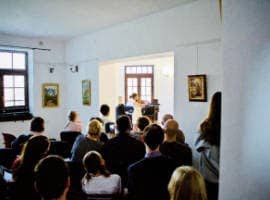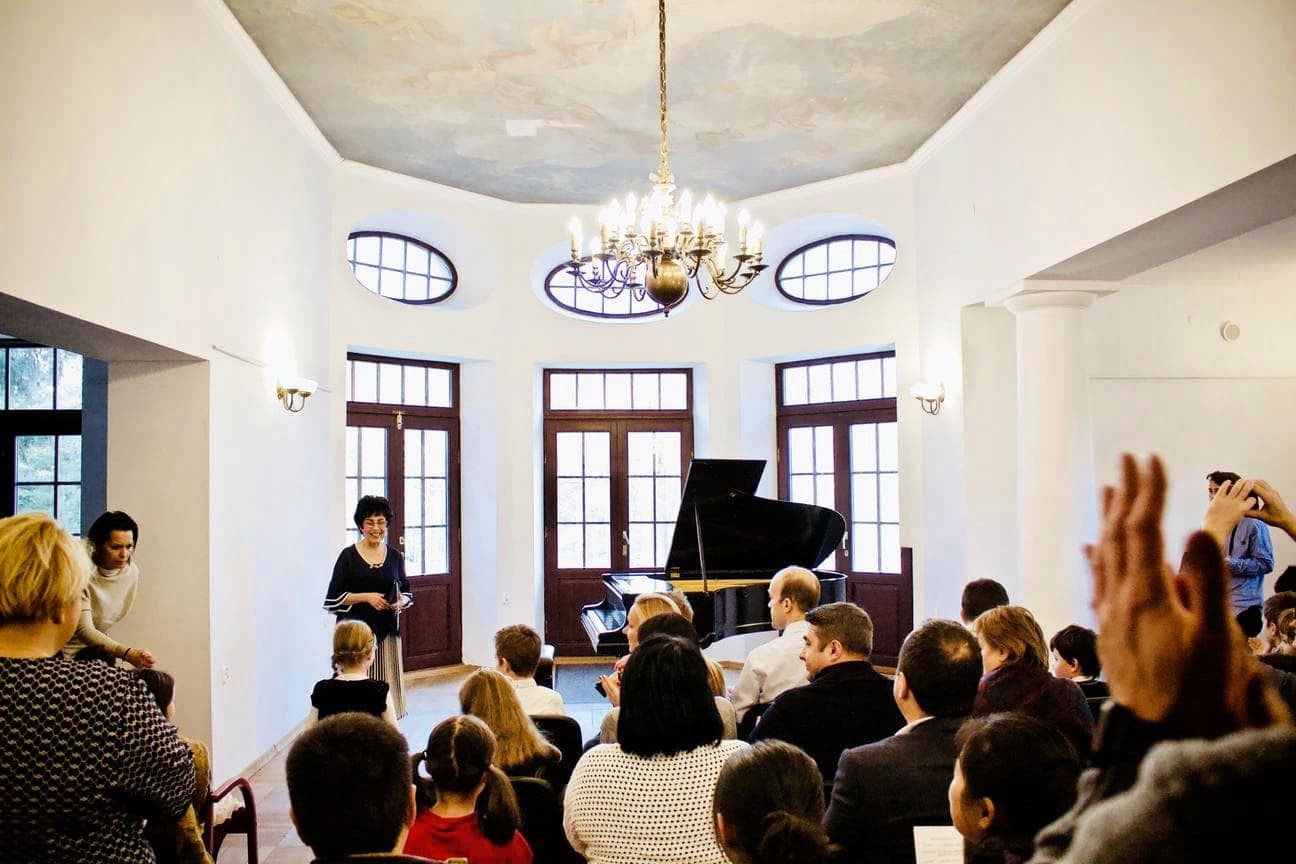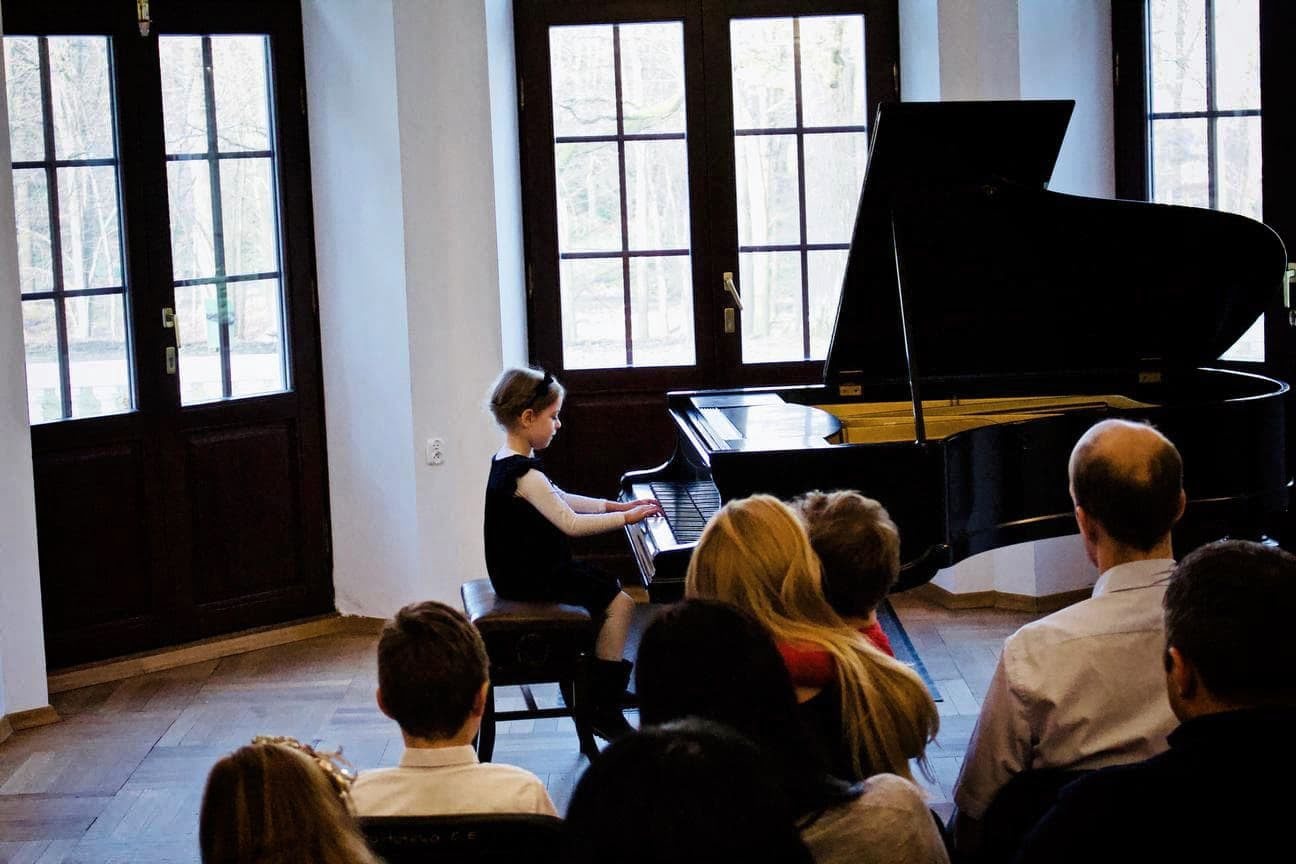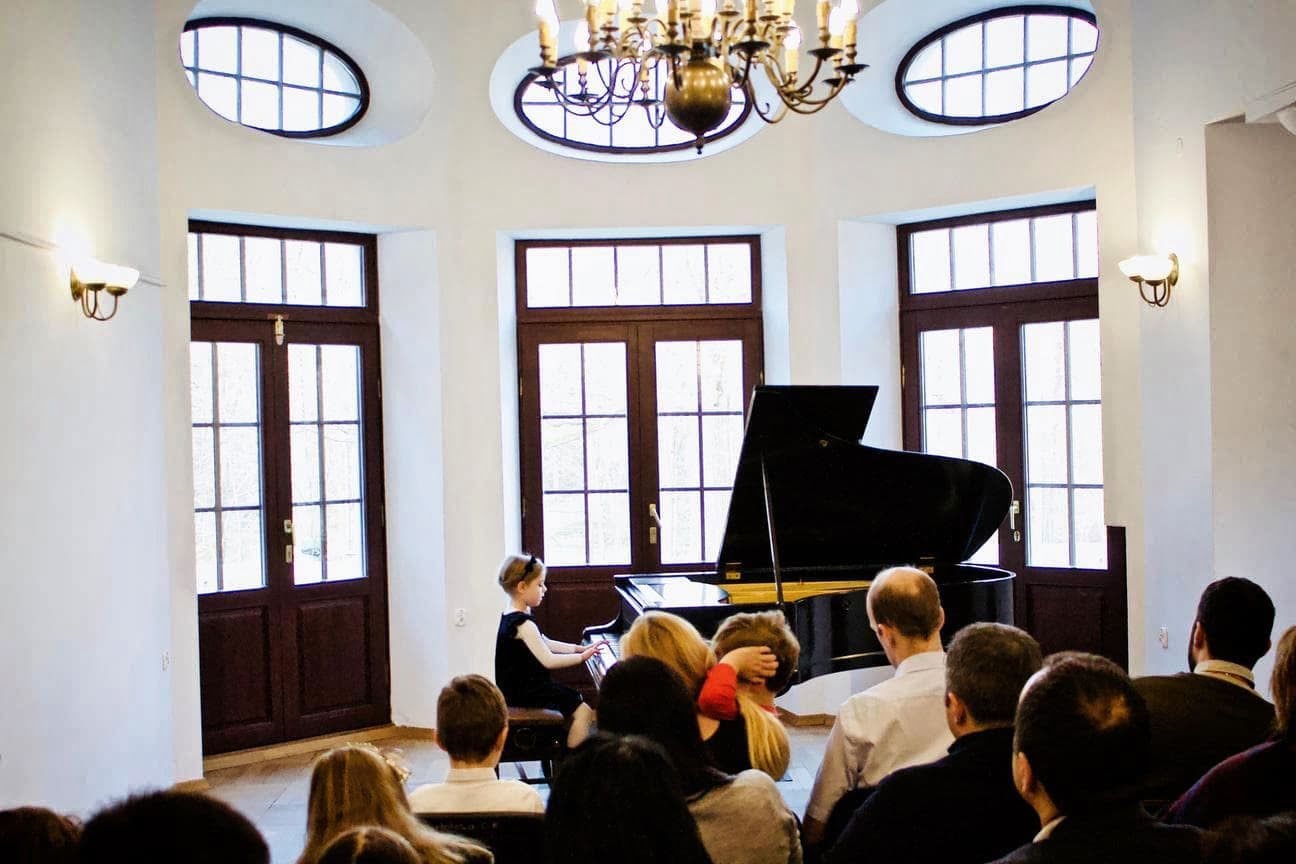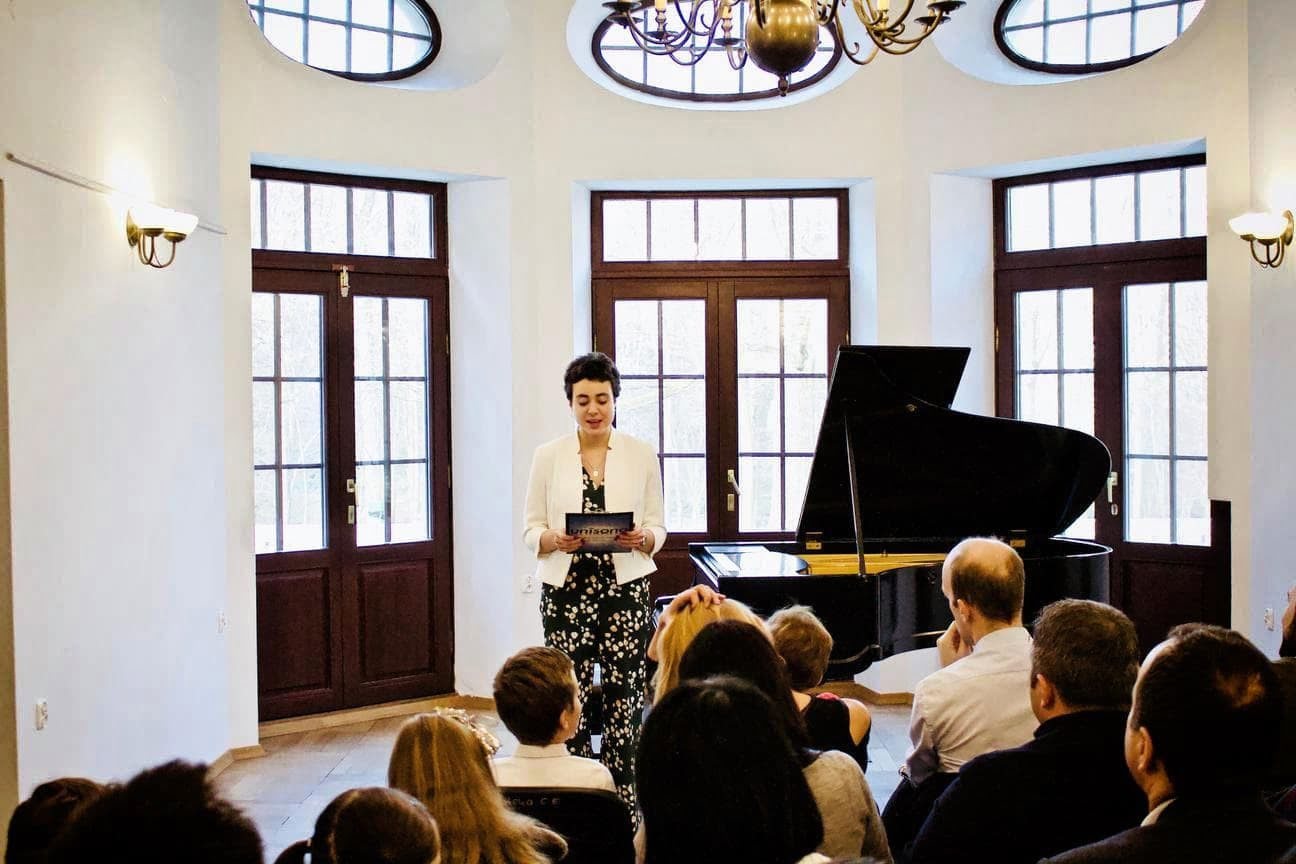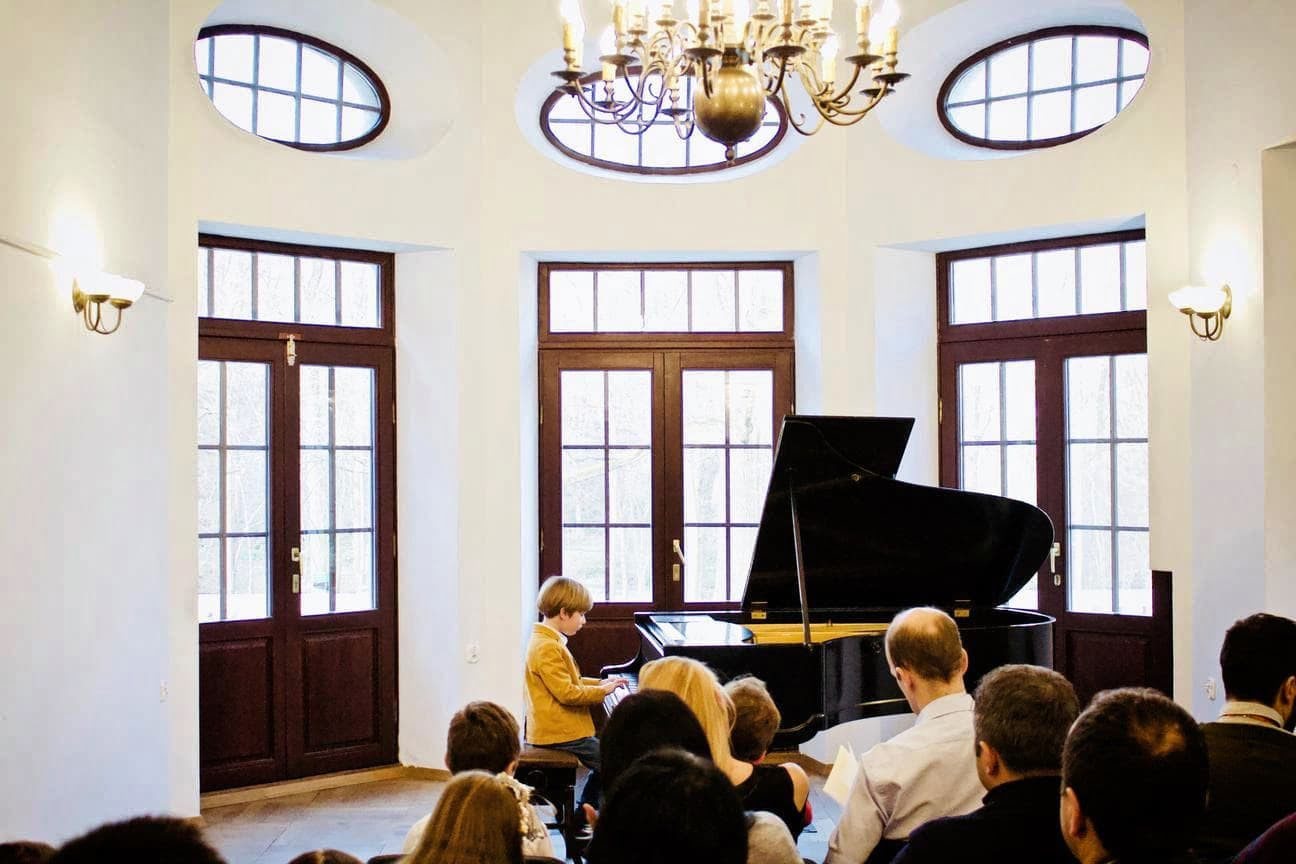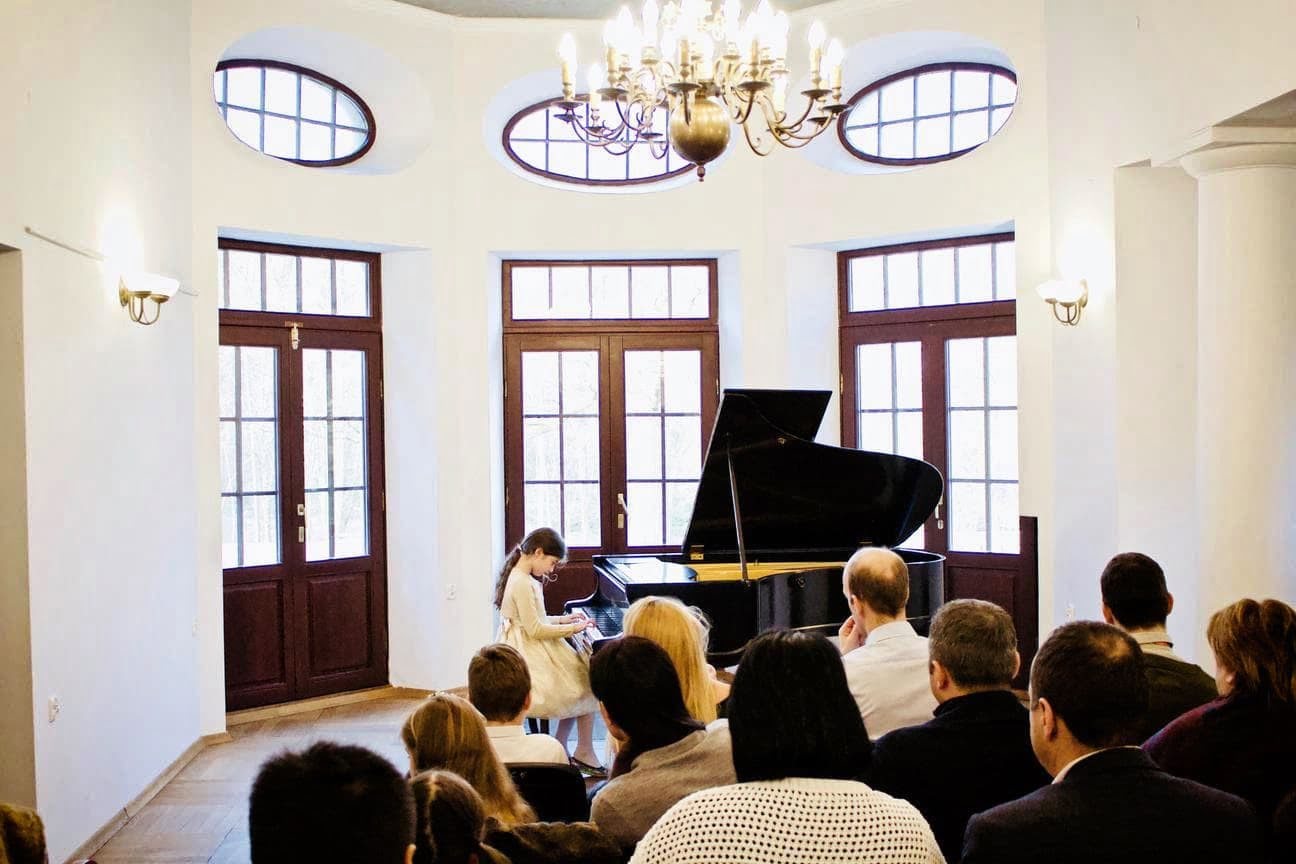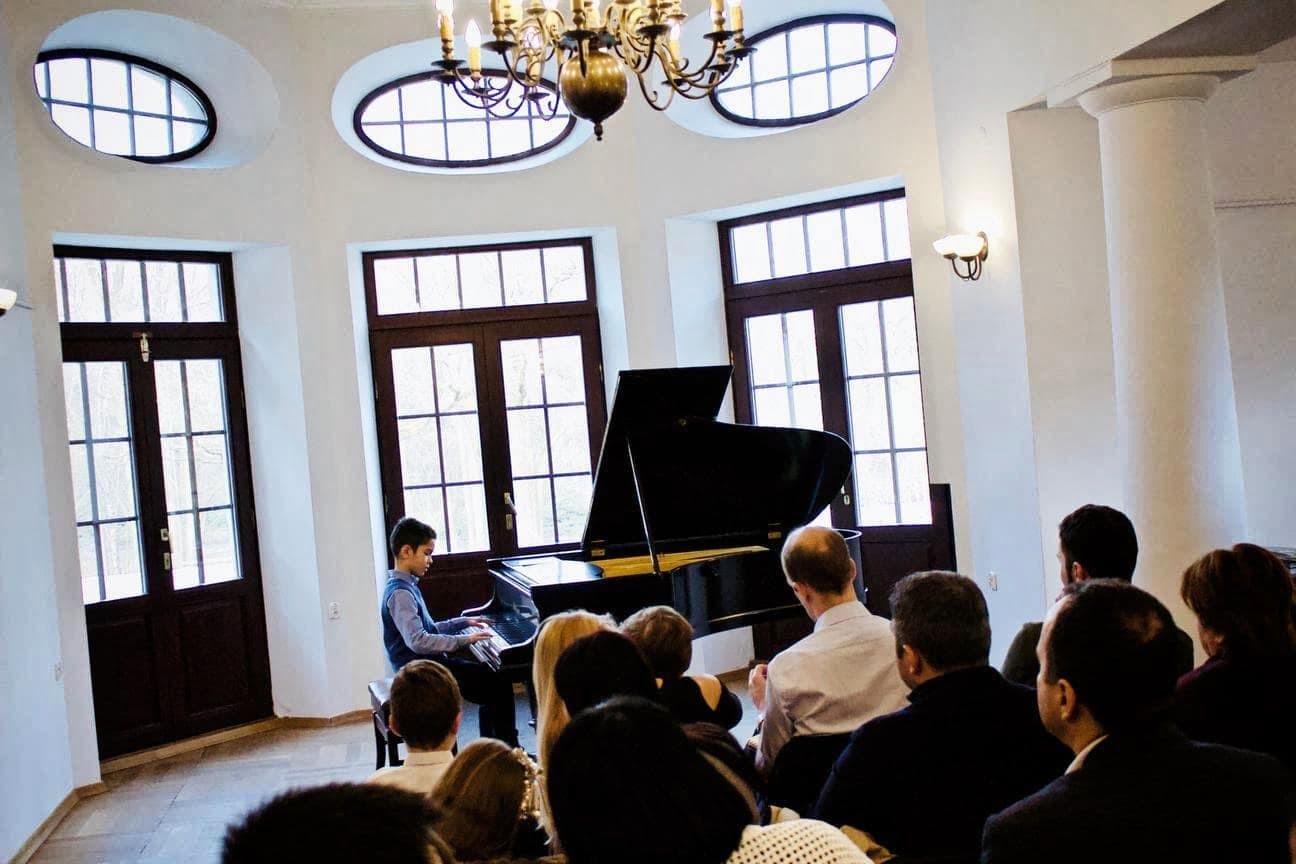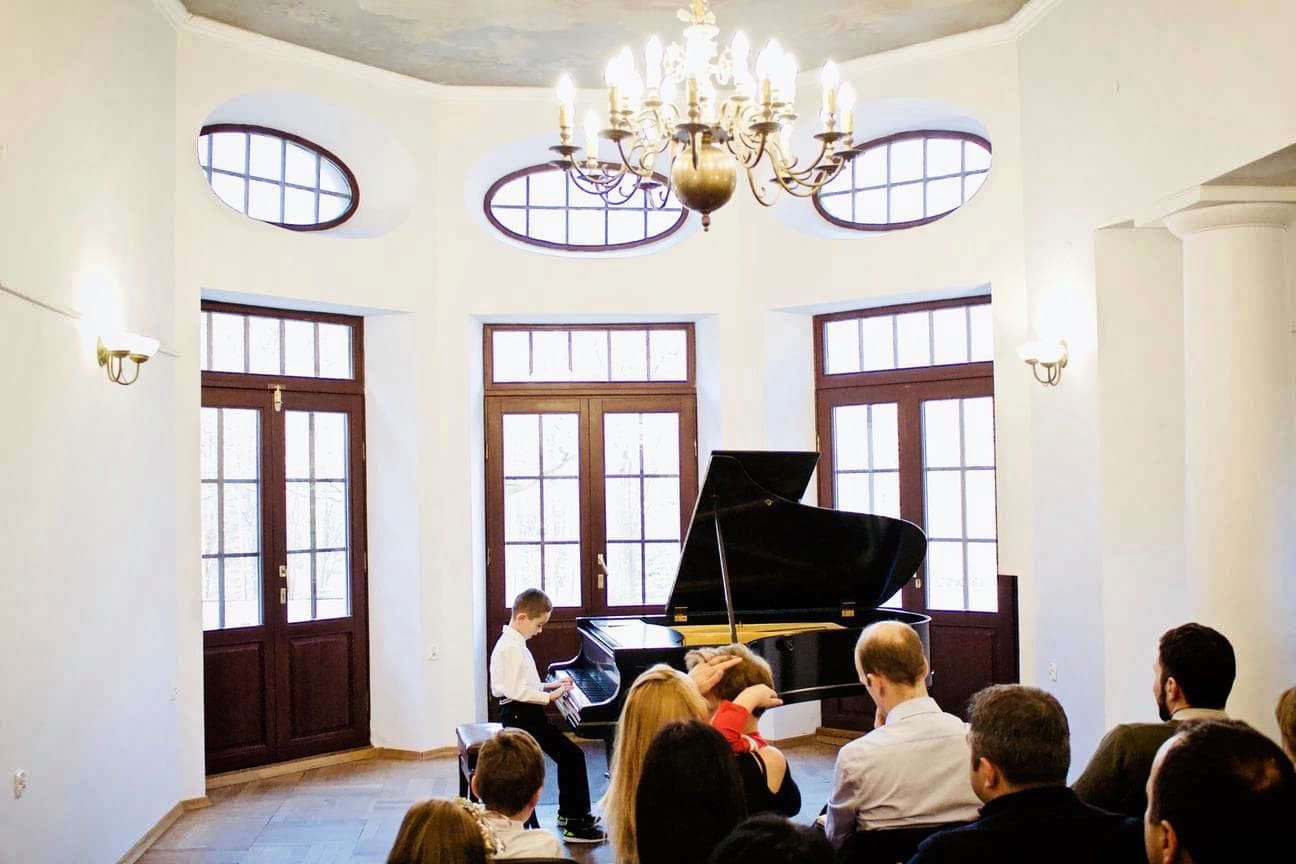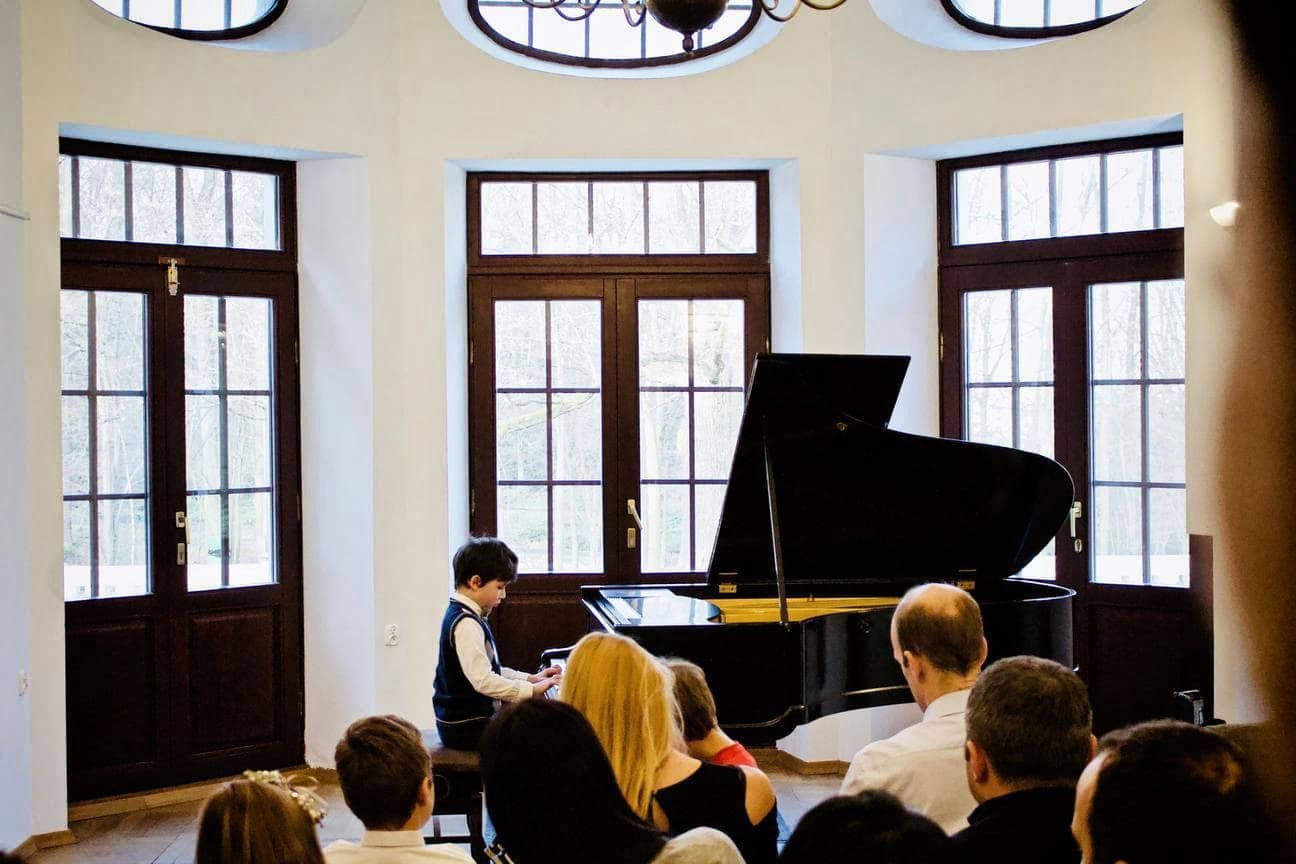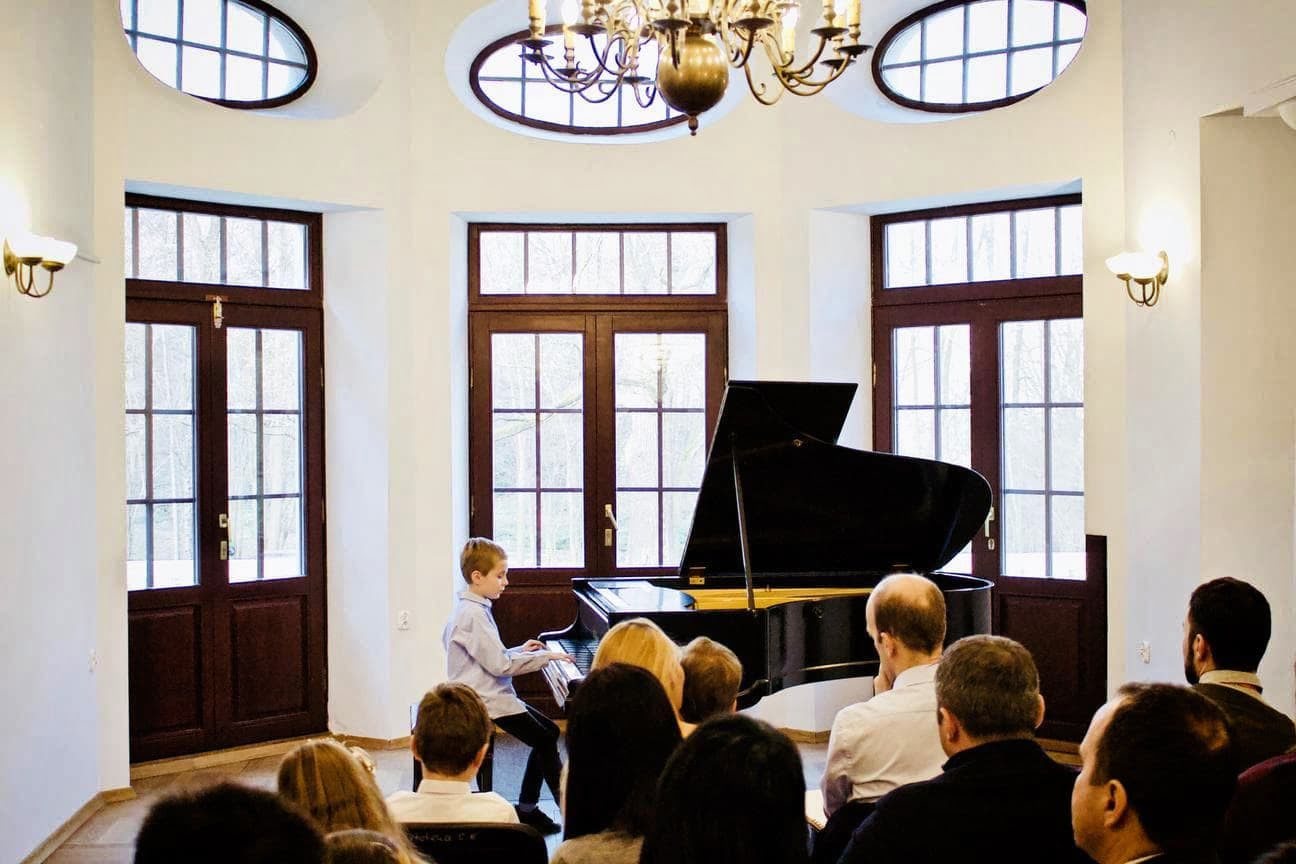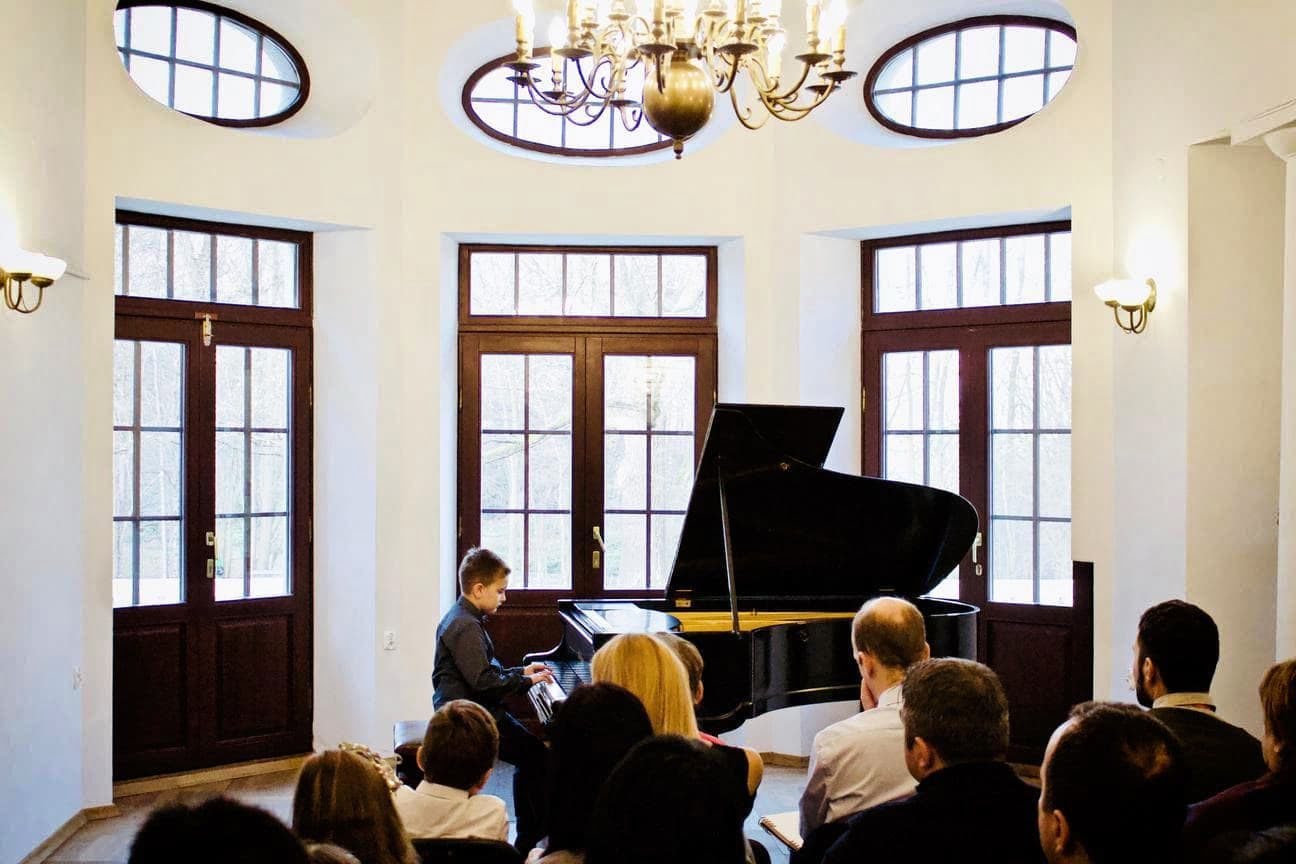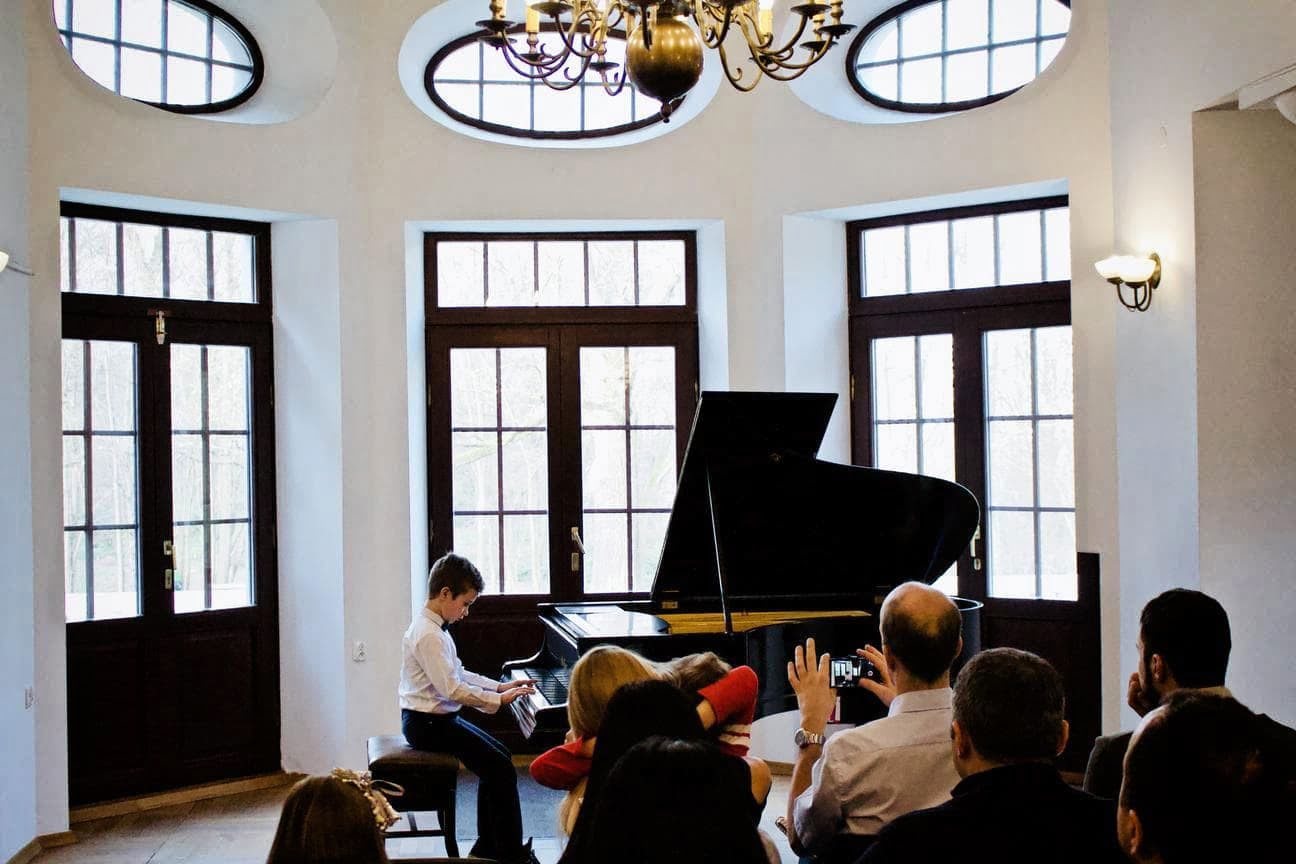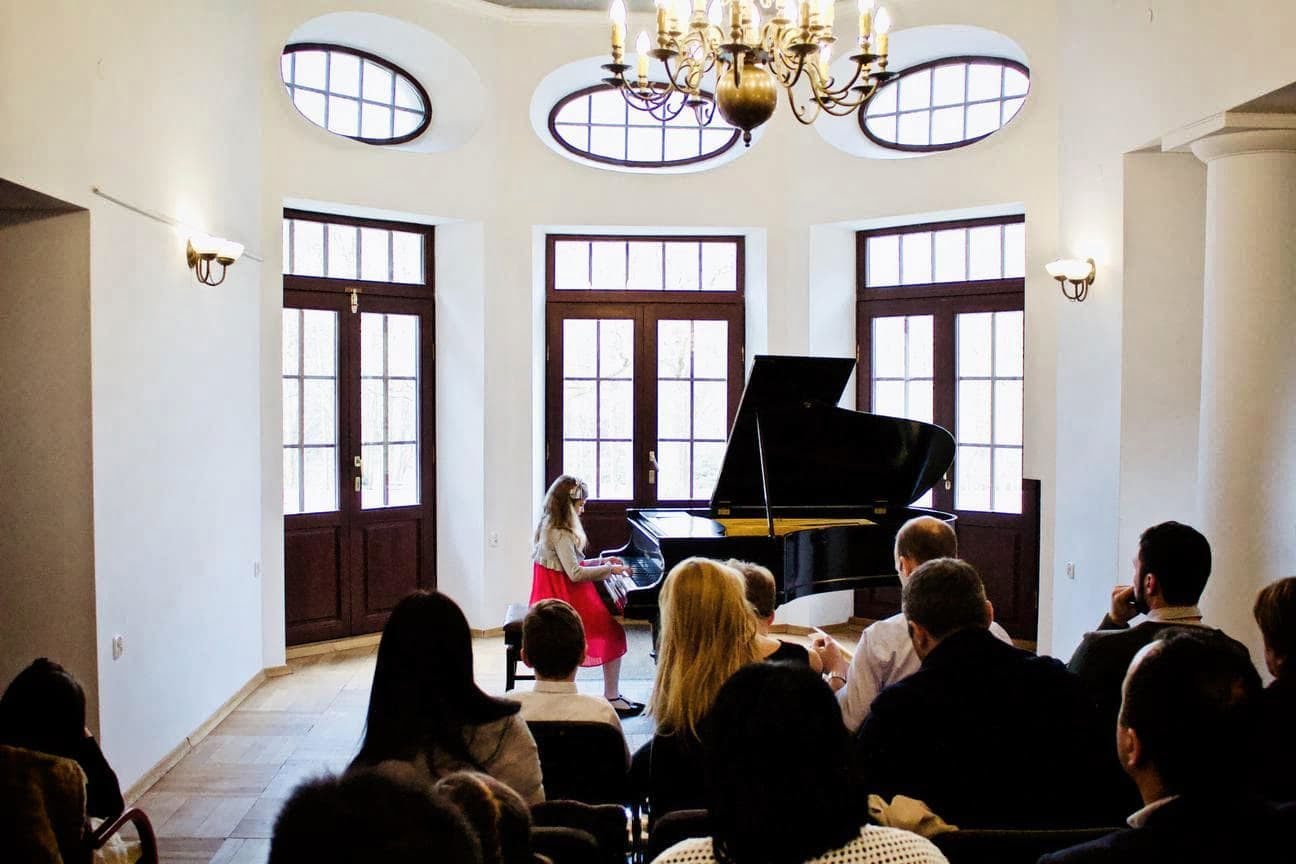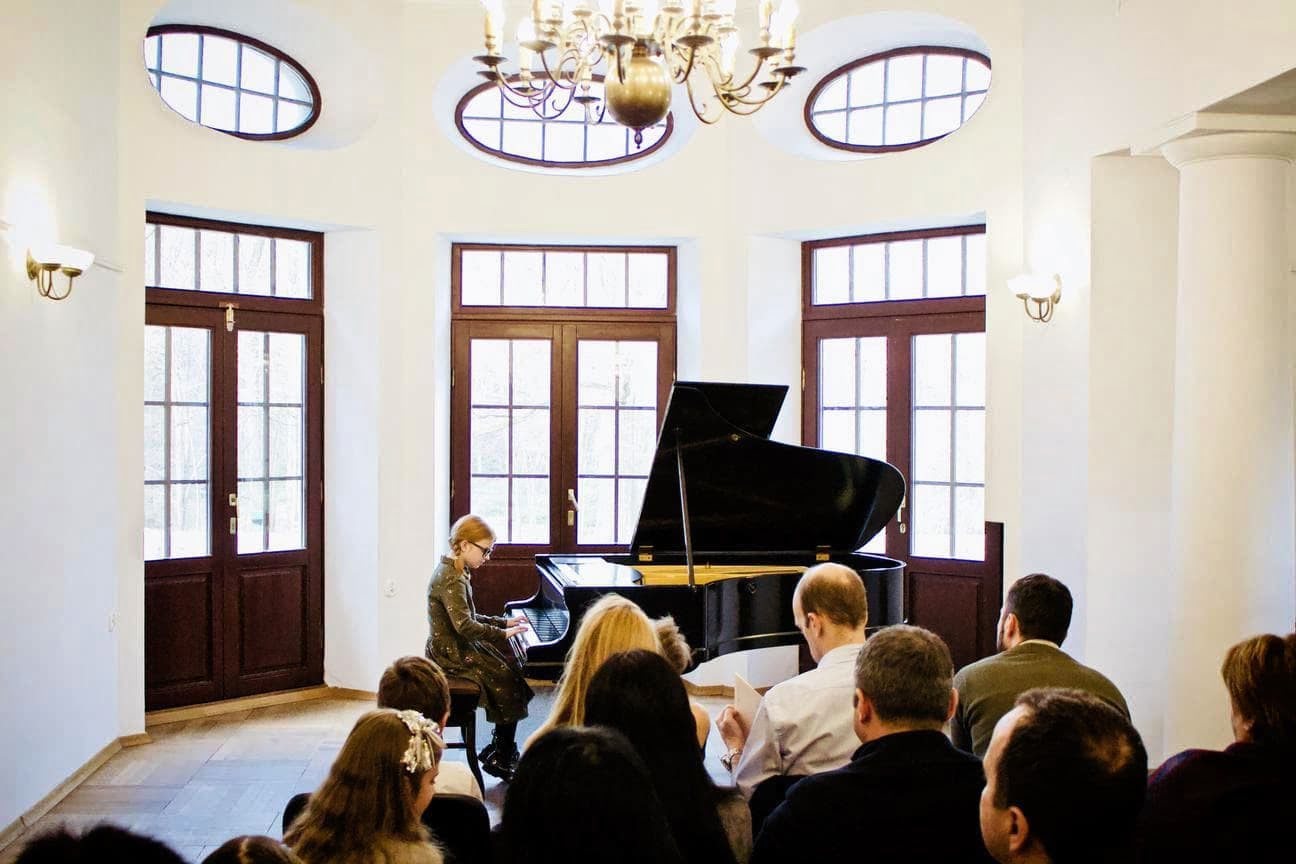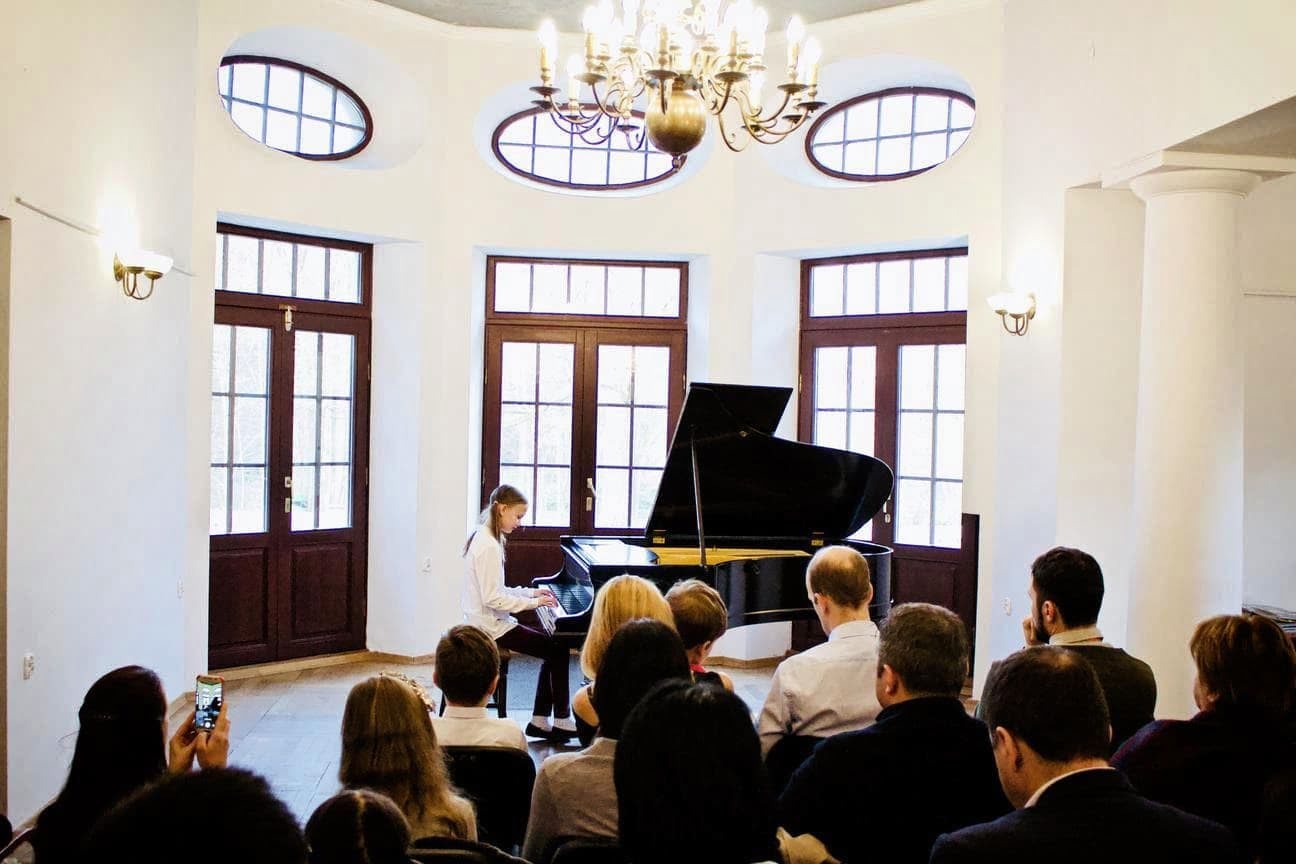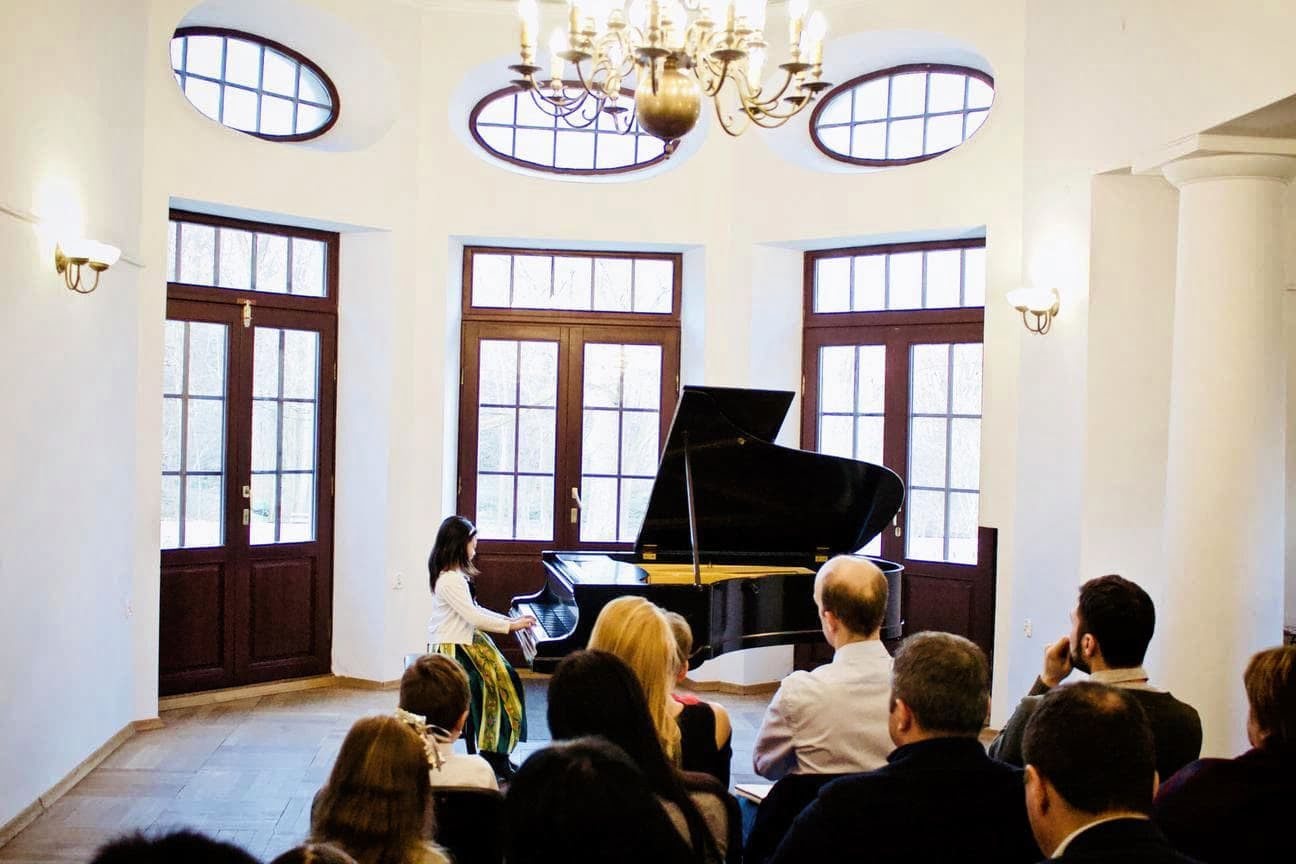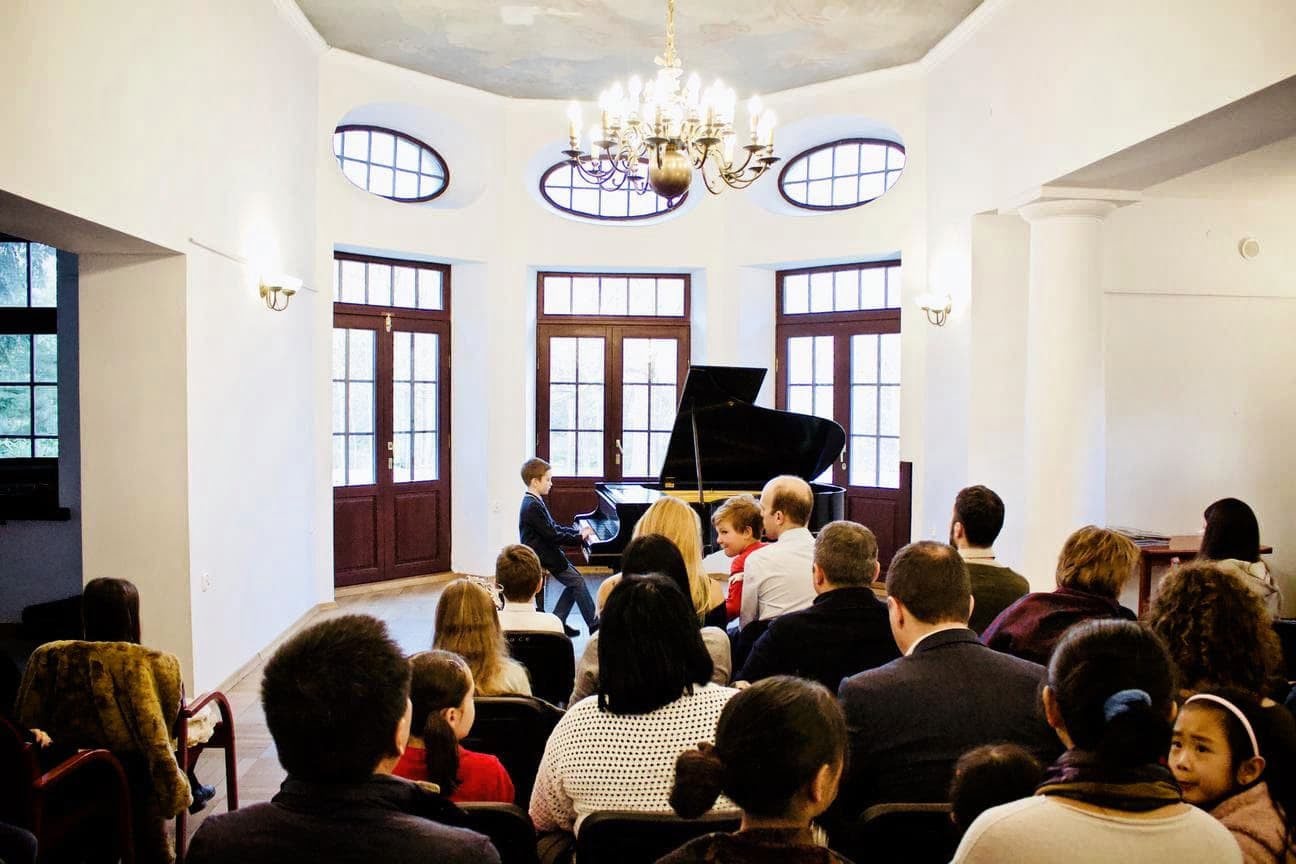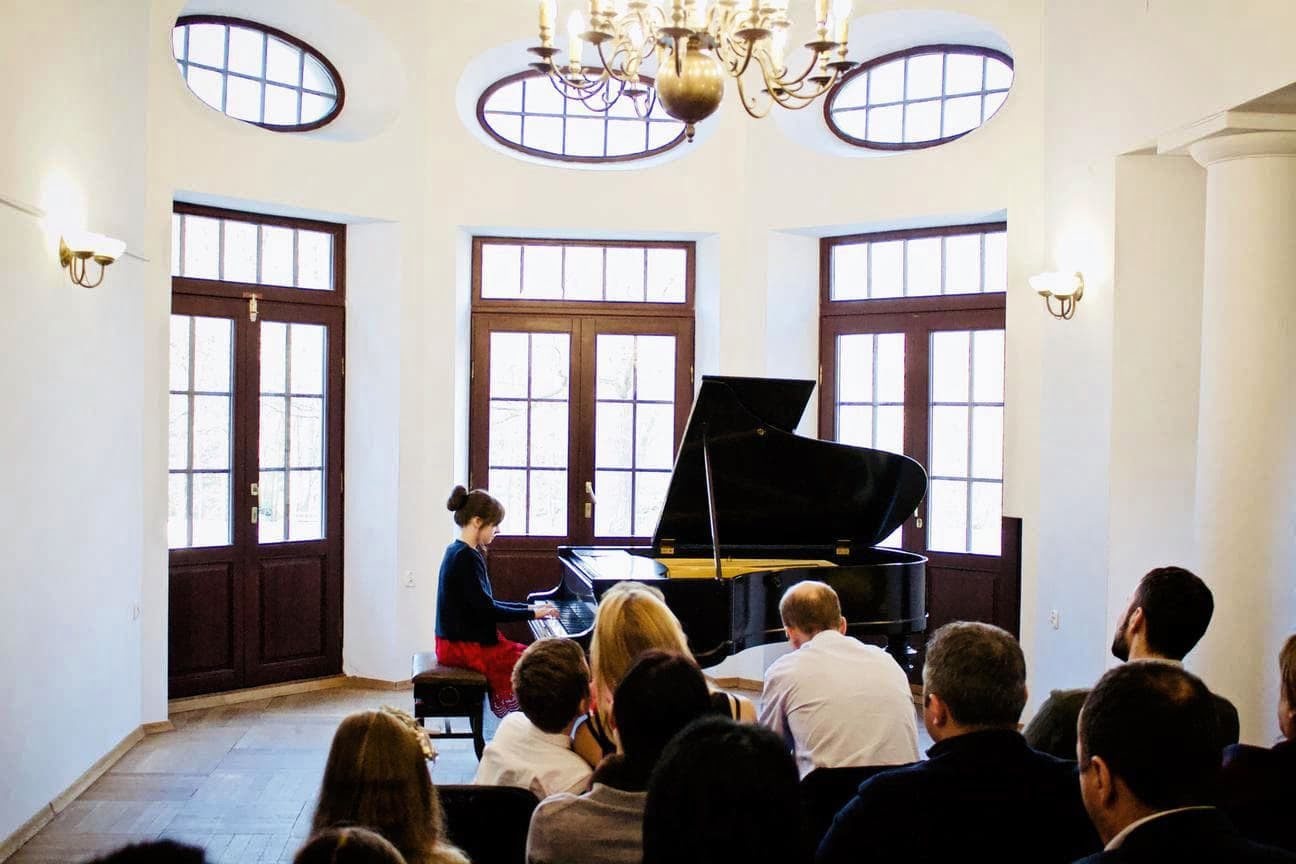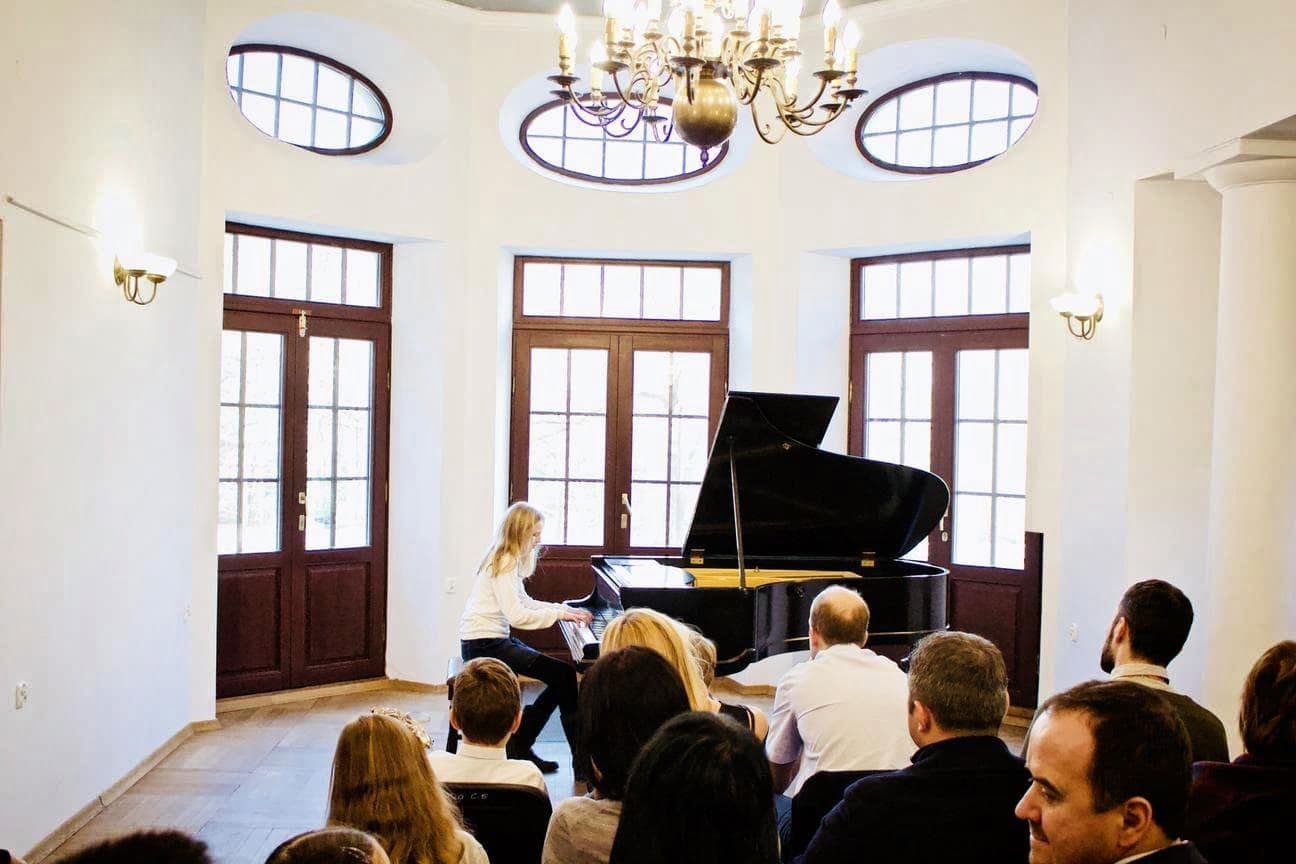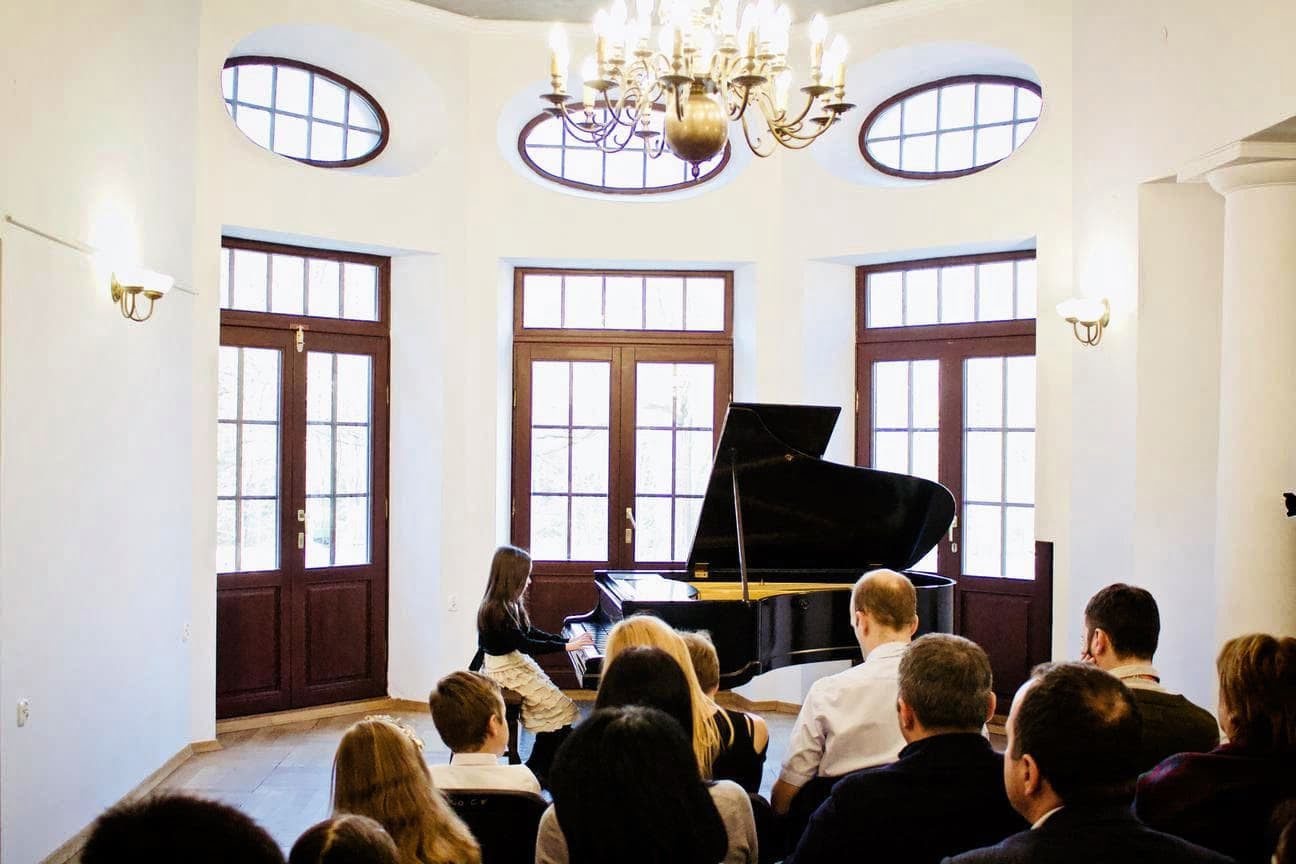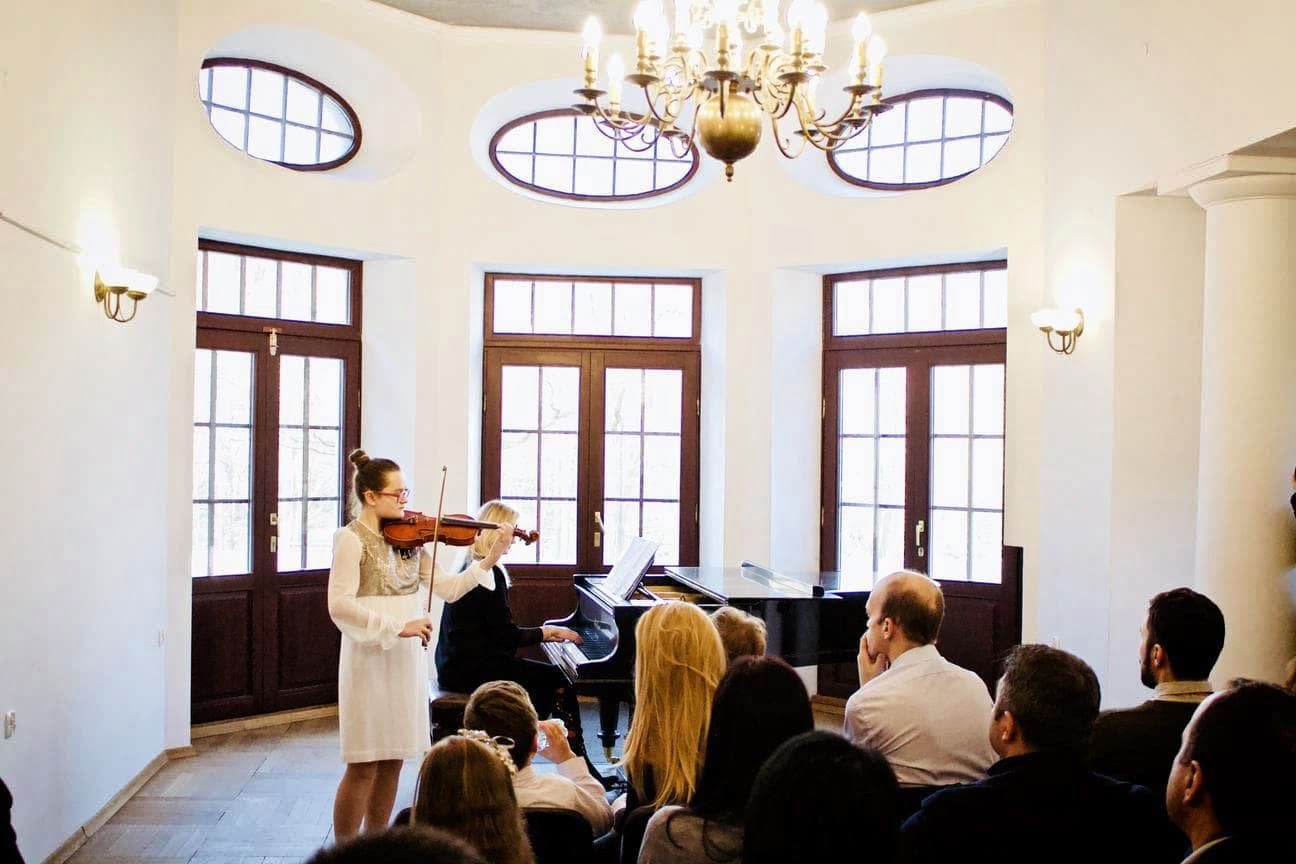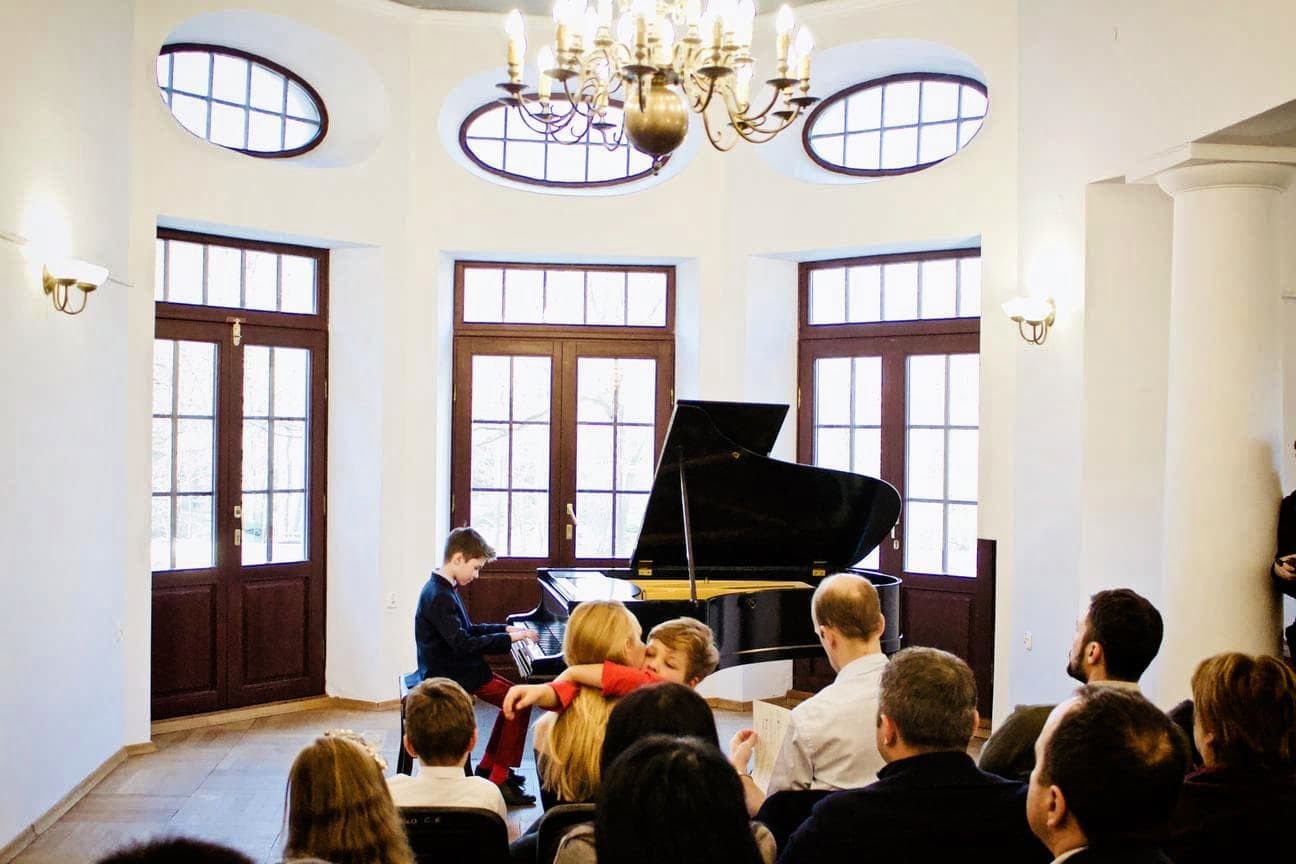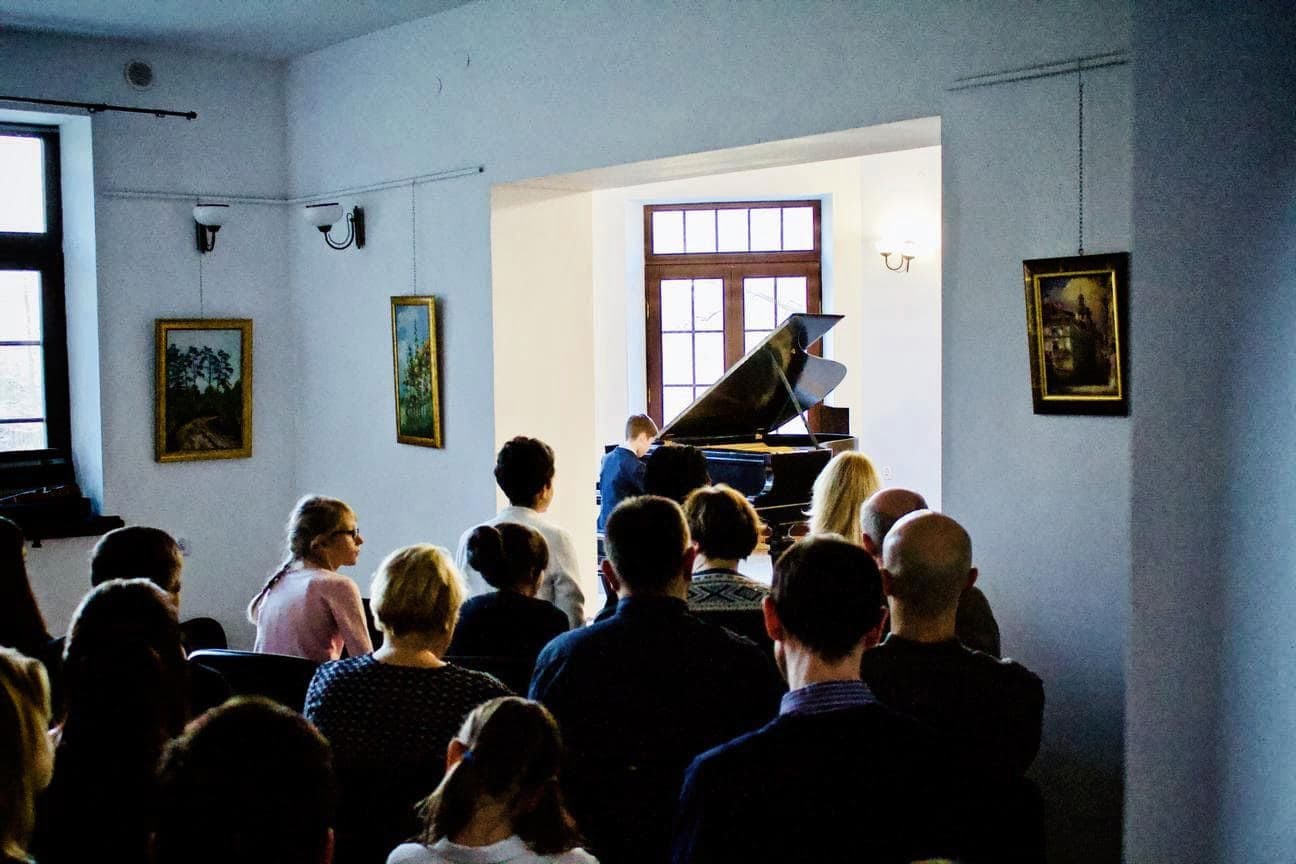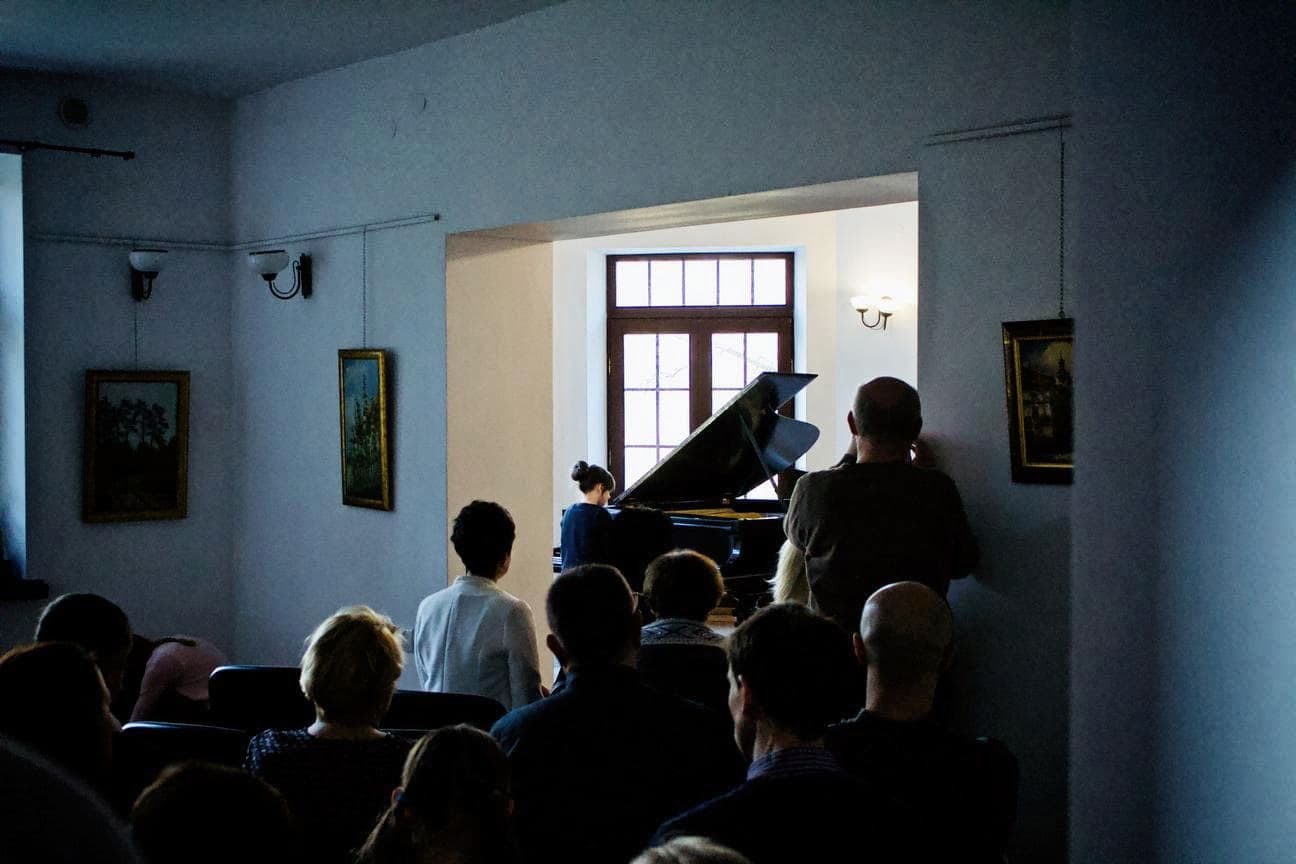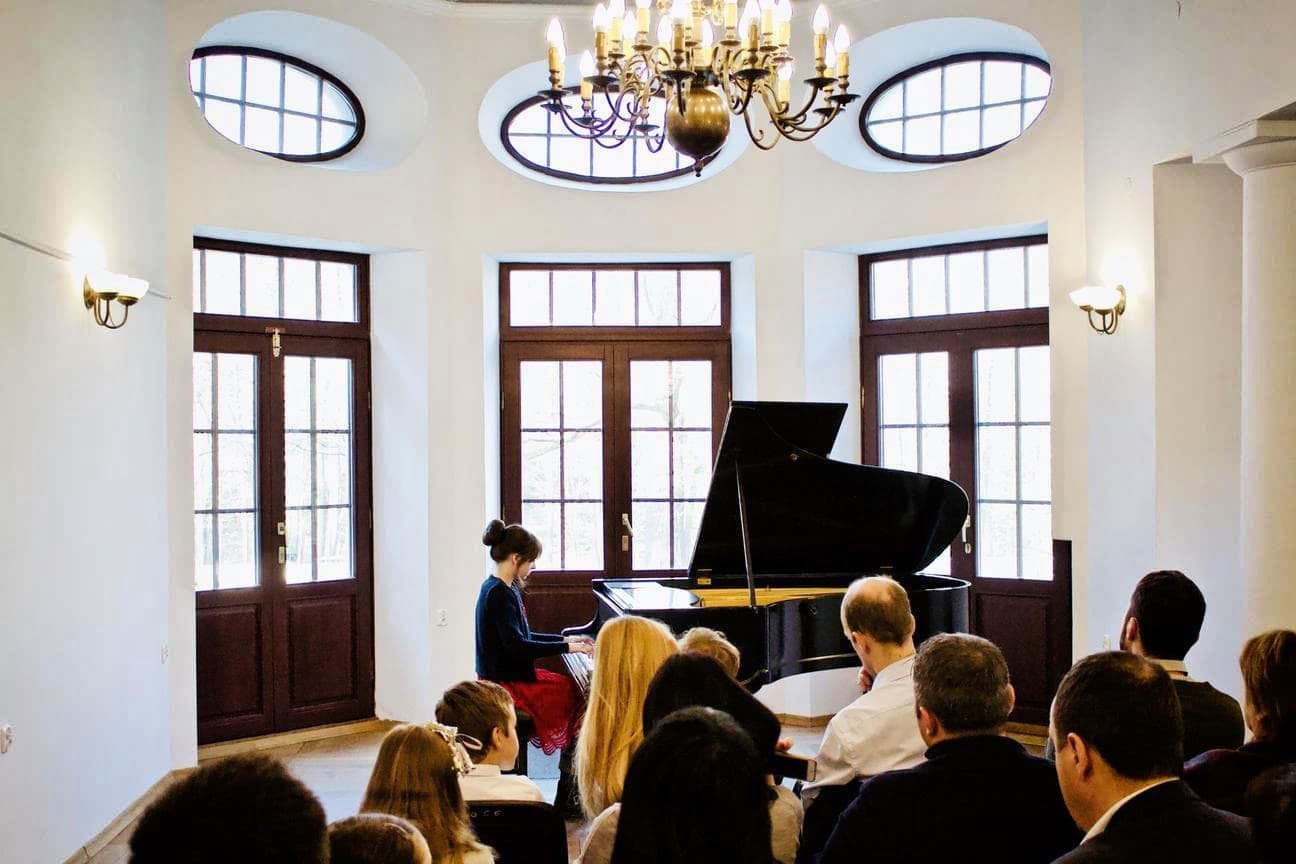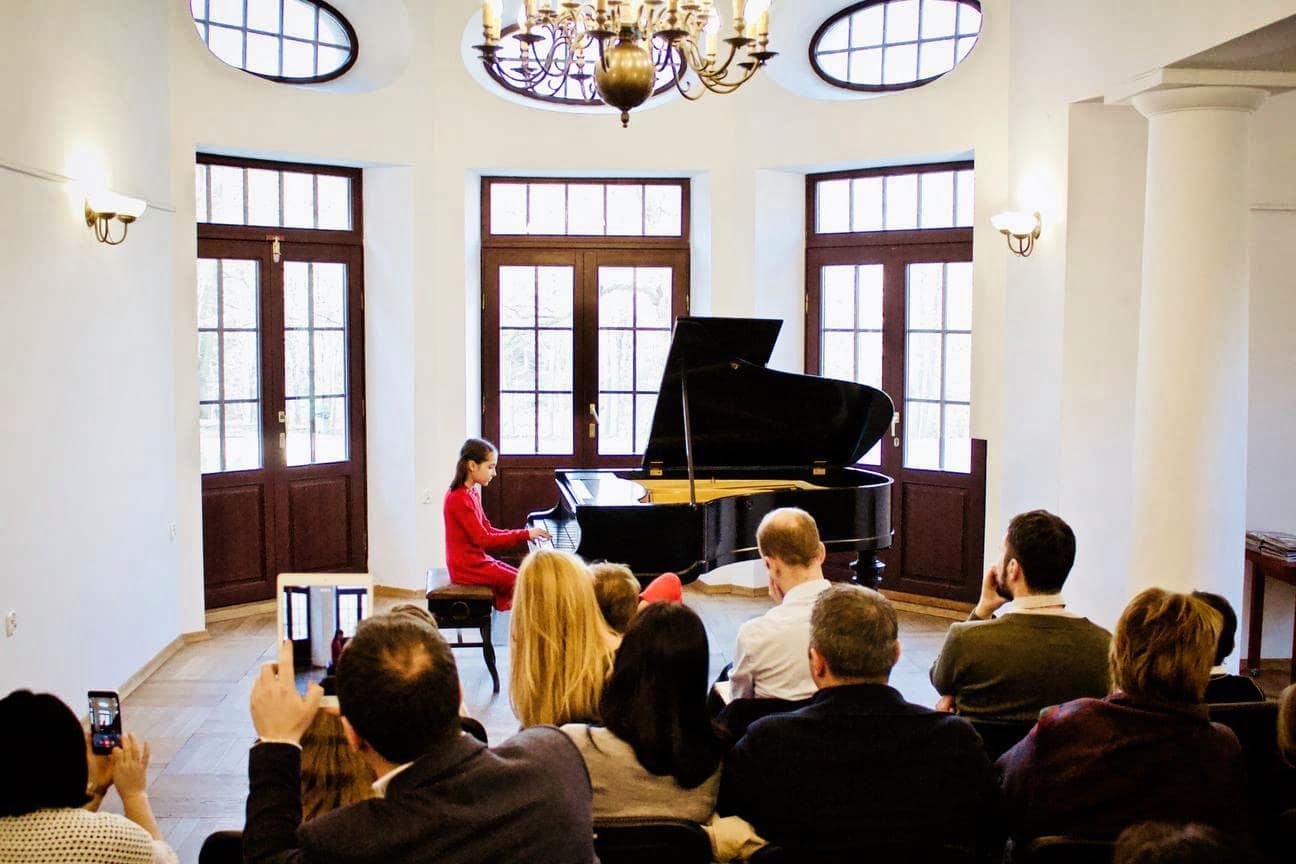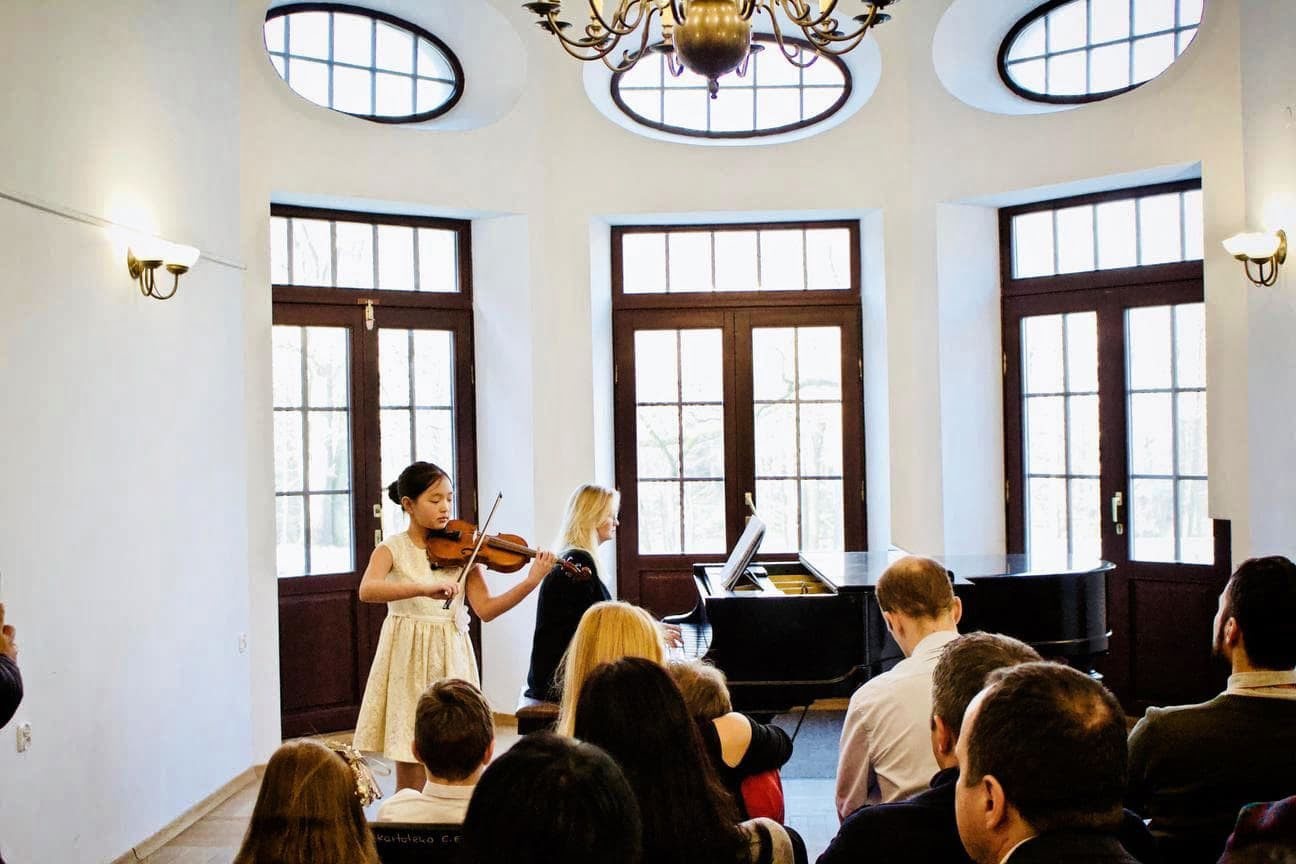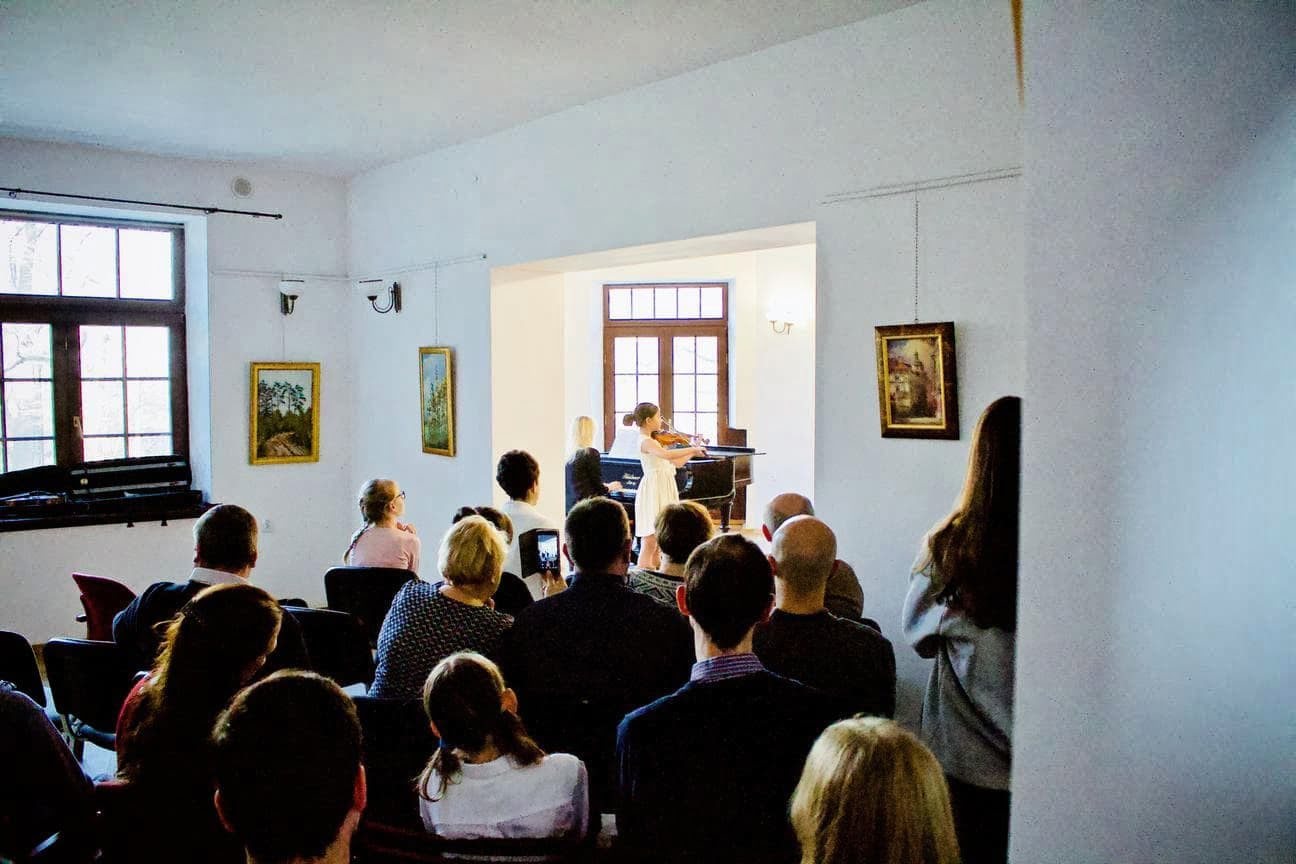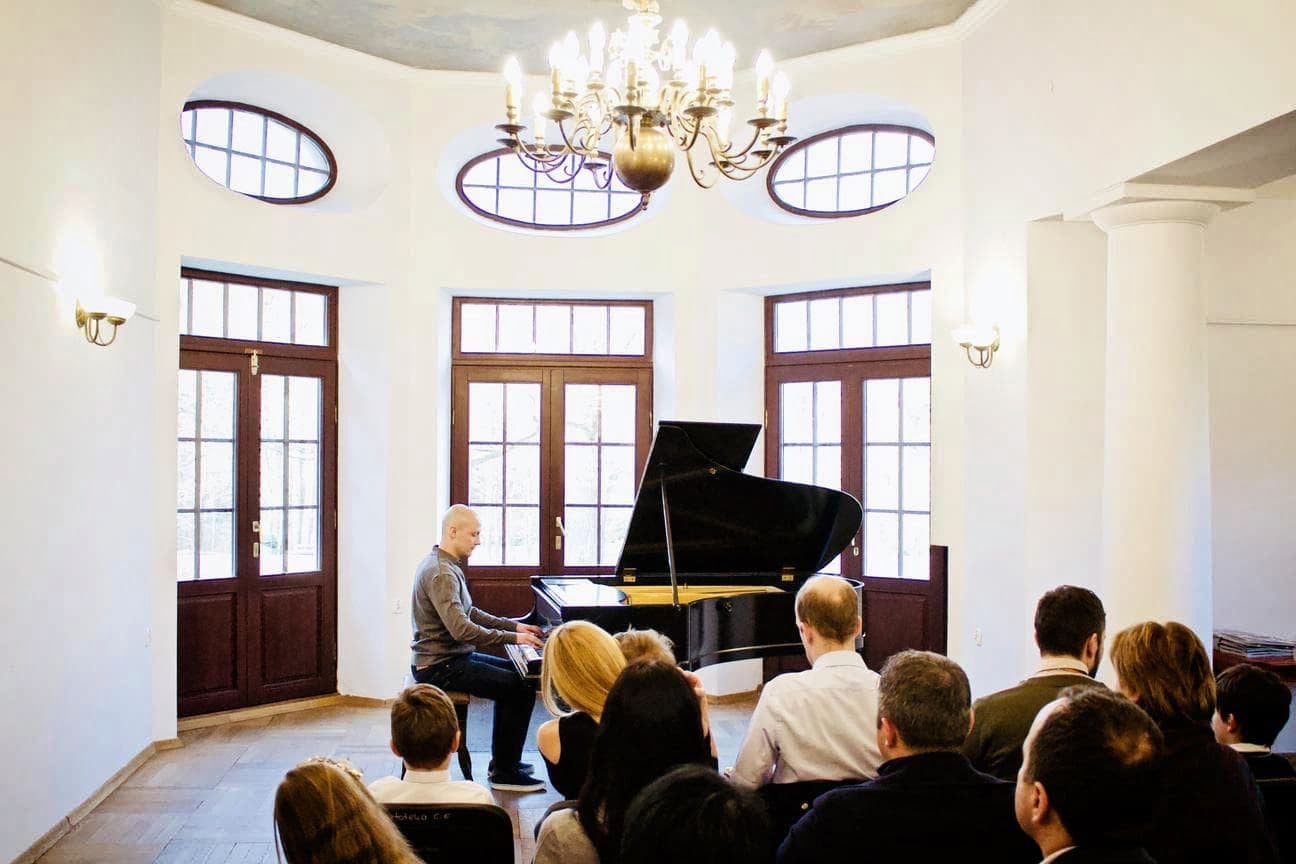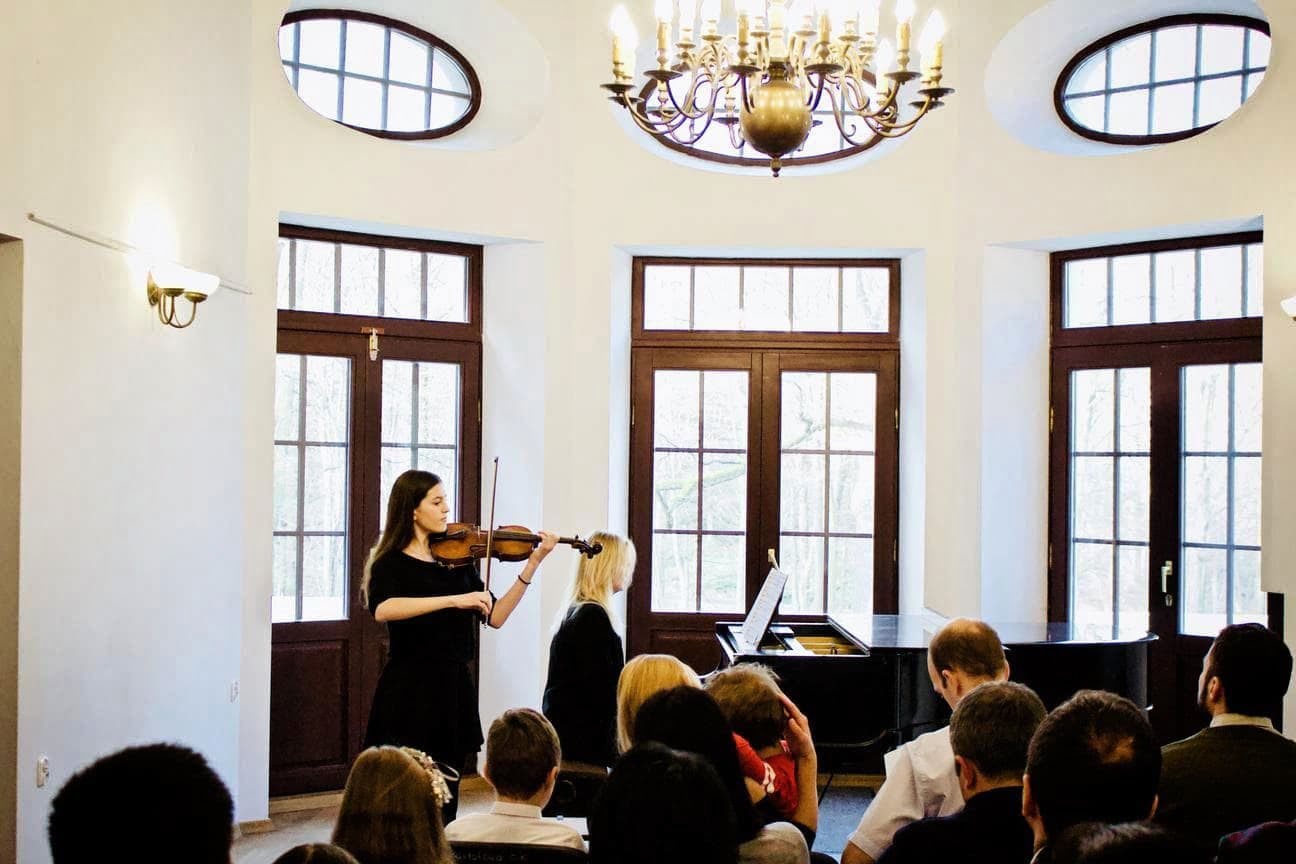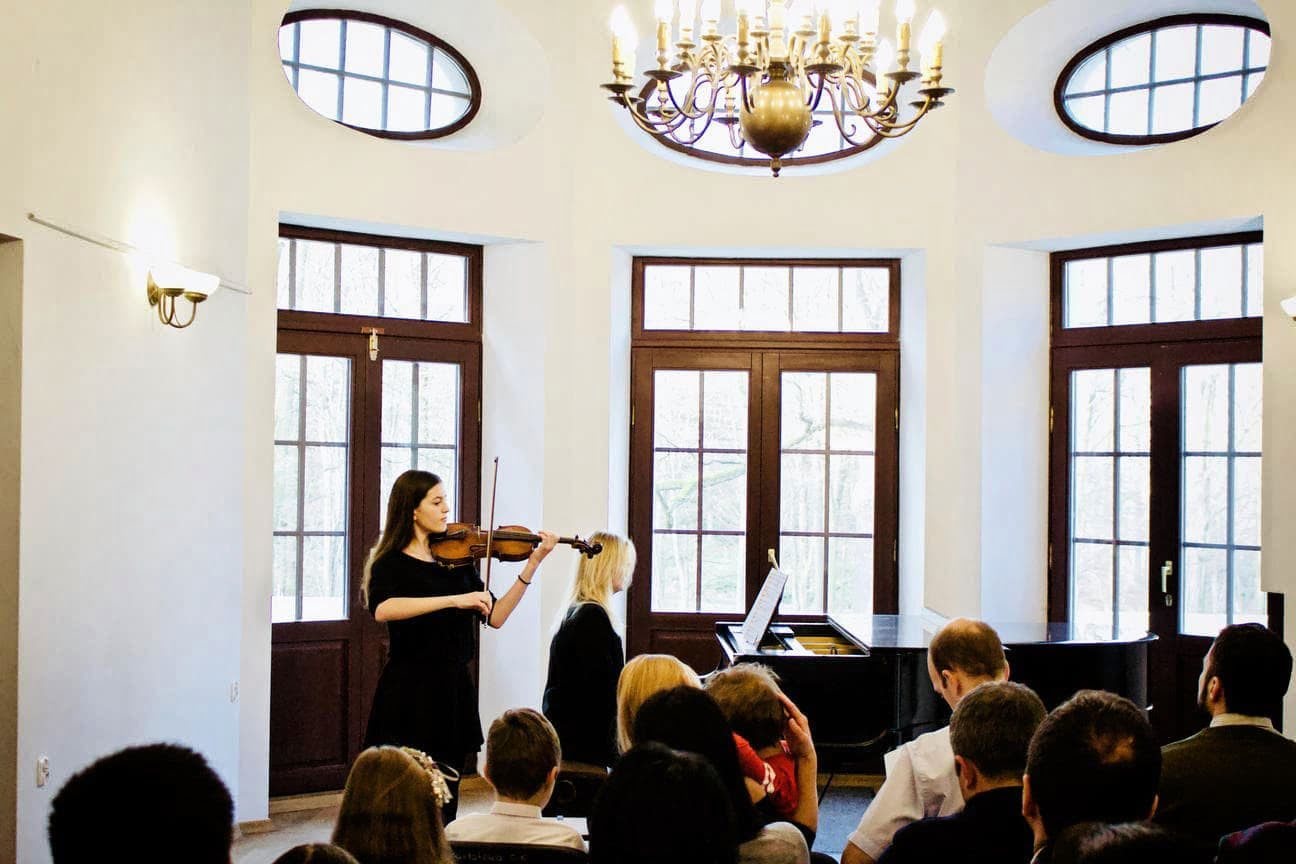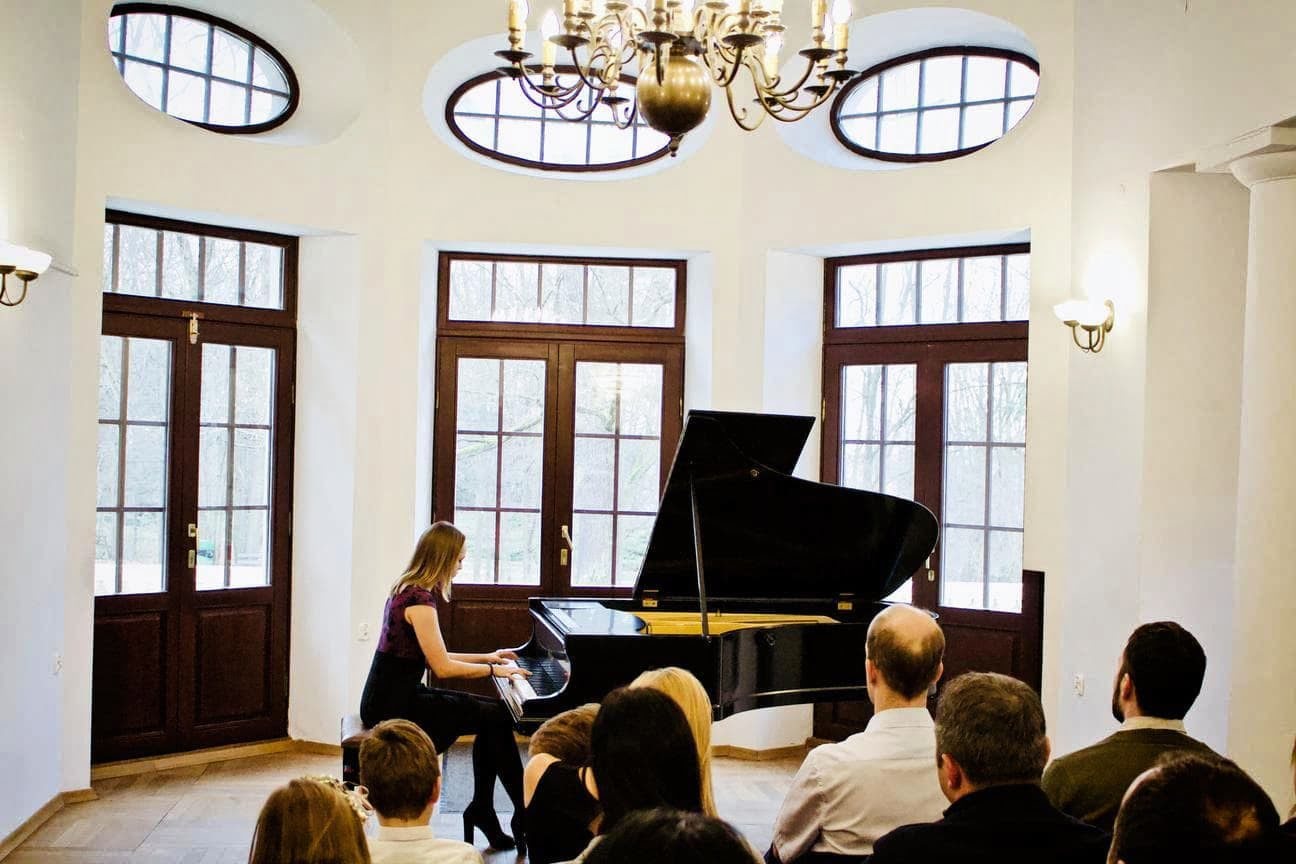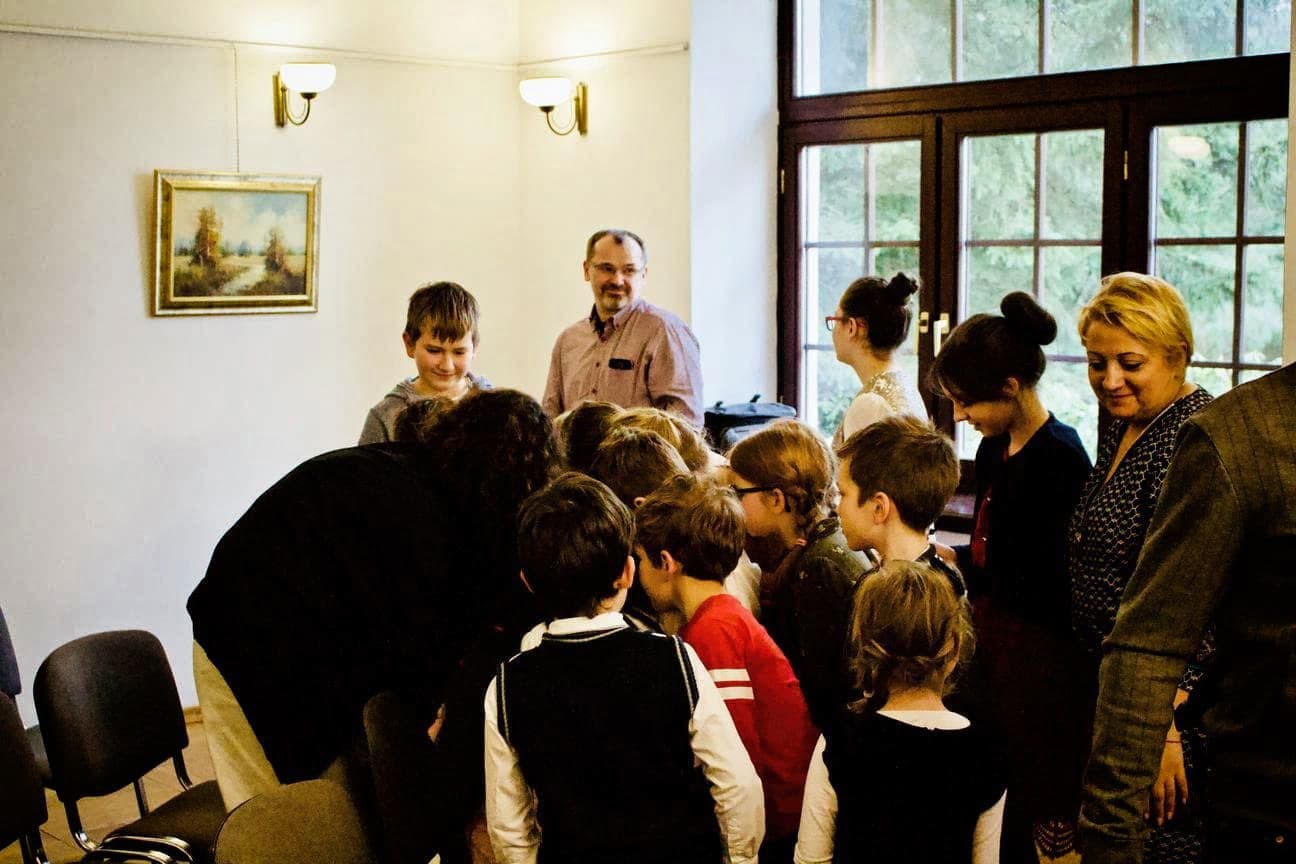Finally awaited Unisono Music Academy Christmas Carols Concert 2017. Even though previous concert of our School was held not so far from now, we met again 17. December 2017 in Fangor manor-hous to give another concert, this time devoted mostly to carols. This kind of musical program is one of the most beloved programs performed by our pupils who wait for it impatiently and work hard to be well prepared to the event. This time, our repertoire encompassed not only classical and traditional carols but also pearls of classical music. This made it diversified and interesting not only for the performers but also for the audience.
A classical carols concert is a festive and joyful event that celebrates the holiday season through music. It typically features traditional carols and classical Christmas music, performed by our students musicians using classical instruments and techniques. This was a wonderful source of entertainment and cheer for audiences of all ages. Attending a classical carols concert was a memorable and enjoyable experience, as it provided the opportunity to hear beloved carols and holiday music performed in a classical style. It is a great way to get into the holiday spirit and celebrate the season with friends and loved ones.
Magda Lewandowska class of piano was represented by
- Marysia Hanyga who played carol “Bóg się rodzi” (God is Born);
- Ignaś Laskowski performed another carol “Dzisiaj w Betlejem” (Today in Bethlehem);
- Franek Grygorczuk did “Sleep gently Baby-Jesus”;
- Nathan Caniard executed popular carol “Cicha noc” (Silent Night);
- Jojo Yiang Yi played Polish carol “Mizerna cicha stajenka licha” (Poor Little Manger);
- Hania Głąb played twice – her first performance was “Triumfy Króla Niebieskiego” (Triumphs of the Heavenly King) and the second – Wolfgang Amadaeus Mozart “Marsz turecki” (Turkish March);
- Zosia Kowalska performed “Minuet” by Johann Sebastian Bach;
- Amelia Tebbens played “Dla Elizy” (For Elisa) by Ludvig van Beethoven;
- Tosia Kulig did the first part (Alegretto) of Sonatina in F-Major no. 3 by Thomas Attwood;
- Her brother Franek performed the second part of Sonatina in A-Major op. 21 no. 3 by Johann Baptist Vanhal;
- Marcin Siwicki presented the leading motive of the motion picture “Mariage d’amour”;
- Arsenij Voloshyn presented the famous and popular song “We Wish You a Merry Christmas”;
- the same song, yet in other arrangement, was played by Zofia Tomaszek;
- Franek Grygorczuk who played “Lulajże Jezuniu” (Sleep gently Baby-Jesus);
and this was the last composition presented at the end of the concert.
From Julia Leviuk class of piano performed
- Leon Gyurkovich performed “Poleczka” by Dmitry Kabalevsky;
- Victor Polipot did „Minuet” by Leopold Mozart;
- Jaś Piwoński played “Poranek” (Morning Dew) by Edvard Grieg;
- Bianca Zolumov performed Peter Tchaikovsky’s miniature “Chora lalka” (The Ill Doll));
- Madeline Hojer played “Lullaby” by Vitaliy Nugesimov;
- Simona Procheva performed “Marsz żołnierzyków” (March of tiny Toy Soldiers) by Peter Tchaikovsky; and
- Michał Kotas performed Johann Sebastian Bach “Invention for two voices” and Johannes Brahms Waltz in Gis-minor’.
From Zofia Zwolińska class of violin played
- Ella Bai executed Violin Concerto in a- minor by Johann Sebastian Bach;
- Julia Jaworska played the third part (Rondo) of the Violin Concerto in D-Major No. 2 by Wolfgang Amadaeus Mozart, and
- Natalya Voloshyna who performed Violin Concerto ‘Adelaide’ by Wolfgang Amadaeus Mozart .
The program was led and announced by Berenika Anna Pietraga
After concert
At the end of the event Zofia Zwolińska, Director of the Unisono Music School, congratulated all performers and enhanced them to develop their musical skills and artistry for their personal satisfaction and the reputation of our School. Director Zwolińska expressed also her thanks and appreciation to the teachers of the School exposing their successful engaged, professional and pedagogical work with their pupils. Last but not least, she addressed her thanks and appreciation to parents, grandparents and all sympathizers of our School, as well as to the entire audience which warmly applauded the soloists.
Finally, Director Zwolińska invited all to the New-Year Concert that will be performed by teachers of our School on January 7th 2018 at 12.00 O’clock at the Fangor manor-house in Powsin.
Carlos concerts are special for us
Carols concerts are a festive and joyful way to celebrate the holiday season, and they can be a wonderful source of entertainment and cheer for audiences of all ages. Special events like this can be highly anticipated and often draw a large and enthusiastic audience.
There are a two things that can contribute to the success of a carols concert, such as:
- A strong selection of carols: A carols concert is likely to be more successful if it features a strong selection of well-known and beloved carols. These could include traditional carols, modern renditions of classic carols, or original compositions that capture the spirit of the season.
- Our talented performers: A carols concert is enjoyable if it features skilled and talented performers who can bring the carols to life with their voices and instruments. We prepare our students for live performance and cheer them up.
A well-planned and organized event is likely to be more successful than one that is rushed or poorly prepared. A special event like a Carlos concert is likely to be more successful if it features a high-quality and engaging performance. It sounds like it’s an event that people look forward to and enjoy each year.
History of carols songs in Europe
Carols are traditional Christmas songs that are typically associated with the holiday season in Europe. The history of carols dates back to the Middle Ages, when they were originally sung in Latin by religious communities as a way to celebrate the birth of Jesus.
Over time, carols began to evolve and incorporate elements of local folk music and cultural traditions. In the 19th and 20th centuries, carols became more popular and widely known, and many new compositions were written in English.
Today, carols are an integral part of the holiday season in many parts of Europe, and they are enjoyed by people of all ages. Carols are often sung at Christmas parties, church services, and other holiday events, and they can be performed by soloists, choirs, or orchestras.
Overall, carols are a rich and enduring part of the holiday season in Europe, with a history that dates back to the Middle Ages. They are enjoyed by people of all ages and are an important part of many holiday traditions.
Why we have quaterly music school concerts?
Quarterly music school concerts are an essential part of a comprehensive music education. These concerts provide students with valuable opportunities to showcase their progress, build confidence, and gain real-world performance experience. While weekly lessons and regular practice develop technical skills, these concerts allow students to bring their pieces to life in front of an audience.
Moreover, the importance of these quarterly events extends beyond individual growth. They foster a sense of community within the music school, bringing together students, teachers, parents, and friends who share a common love for music. By attending these concerts regularly, one can witness the collective progress made by all students over time and appreciate the hard work that goes into mastering an instrument or developing vocal skills. Carlos concert 2017 is important part of this schedule.
Additionally, quarterly music school concerts serve as platforms for nurturing creativity and musical expression. Students are encouraged to experiment with different styles and genres during performances – from classical compositions to contemporary pop songs – allowing them to explore their own artistic inclinations while developing versatility as musicians.
In conclusion, quarterly music school concerts play a vital role in nourishing well-rounded musicianship. These events not only provide invaluable performance opportunities but also foster a sense of community among musicians while encouraging creative exploration. By attending these concerts regularly or even participating as performers themselves, aspiring musicians can continue on their journey towards becoming polished artists capable of enchanting audiences with their talent and musicality.
HIstory of Catholic Christmas Music
Catholic Christmas music has a rich and diverse history that dates back centuries. From Gregorian chants to hymns sung in Latin, these musical traditions continue to play a significant role in Catholic worship during the holiday season. The origins of this music can be traced back to medieval times when monks and clergy used sacred songs to enhance the liturgy. These chants are characterized by their monophonic texture, intricate melodies, and solemnity, which create an atmosphere of reverence and contemplation.
As time went on, composers began incorporating polyphony into Catholic Christmas music, adding harmonies and multiple melodic lines. One notable example is the works of Giovanni Pierluigi da Palestrina, whose compositions became pillars of sacred choral music during the Counter-Reformation period. He sought to capture the beauty and spirituality of the nativity through his masses and motets. This evolution in composition styles allowed for greater expression and emotional depth within Catholic Christmas music.
Despite these historical developments, traditional Catholic Christmas carols also have a special place in the hearts of believers. Songs like O Holy Night or Silent Night resonate with people worldwide as they celebrate the birth of Jesus Christ. In recent years, contemporary artists have put their own spin on these classics while still maintaining their religious significance. This fusion between modern interpretations and ancient melodies keeps Catholic Christmas music alive by appealing to younger generations while connecting them with centuries-old traditions passed down through faith communities around the world.
